The Consequences of Neglecting Background Screening and Compliance in the UK
In the ever-evolving business landscape in the United Kingdom, ensuring a trustworthy and secure workforce is essential. In 2008, the UK government took a significant step towards achieving this goal by introducing the Employment Background Check Act. This law mandated that employers incorporate rigorous background screening into their hiring process, including criminal background checks, reference verifications, and credit assessments.
The rationale behind these regulations was straightforward: to foster fairness and transparency in the employment sector, safeguarding the interests of both employees and employers. However, more than a decade later, many businesses still grapple with compliance’s complexities.
In this article, we will explore the wide-ranging consequences businesses may encounter when they overlook the importance of background screening and compliance in the UK and how to avoid them. Before that, let’s get to the basics.
Why Employee Background Check Is important?
Employee background checks are of paramount importance for businesses in the UK. They are vital for mitigating risks and ensuring your workforce’s safety, trustworthiness, and compliance.
Mitigating Employee Theft and Fraud
According to UK Finance, there are nearly three million active fraud cases across the UK. Background checks serve as a proactive measure against these risks by uncovering past incidents of theft or fraudulent activities in an applicant’s background. This not only safeguards finances but also maintains the integrity of the workplace.
Building Trust and Reputation
Trust is a cornerstone of business success, and data breaches can severely damage it. In the UK, a 2019 survey indicated that 70% of consumers would discontinue business dealings with a company following a data breach. Background checks are pivotal in building and sustaining trust with customers and partners, assuring them that your employees can be entrusted with sensitive information and preserving your brand’s reputation.
Ensuring Compliance with Regulations
Legal compliance is paramount, particularly in the UK where non-compliance with data protection laws, such as GDPR, can result in substantial fines, potentially reaching €20 million or 4% of the company’s global turnover. Background checks ensure that your hiring practices align with data protection and employment laws, shielding your business from severe financial penalties.
Improving Hiring Quality
Making informed hiring decisions is essential, as the cost of a bad hire can be as high as 30% of the employee’s first-year earnings. Background checks verify qualifications, work history, and references, elevating the quality of your hiring choices and ultimately saving your organization time and resources.
Minimizing Legal Liabilities
In the UK, employment-related lawsuits have been on the rise, with compensation claims averaging around £15,000. Background checks offer a critical layer of protection by reducing the risk of negligent hiring, thereby shielding your organization from costly legal battles and preserving its reputation.
Impacts of Not Conducting Accurate Background Screening Checks/Compliance Procedures
Failing to conduct accurate background screening checks and adhere to compliance procedures can have far-reaching consequences for organizations operating in the United Kingdom. This neglect can lead to various negative impacts, affecting the company and its stakeholders.
Legal Repercussions
Failure to perform thorough background checks and comply with relevant regulations can result in severe legal consequences. Companies may face fines, penalties, and legal actions for non-compliance with UK employment laws and regulations and industry-specific requirements.
Reputation Damage
Neglecting background checks and compliance procedures can damage an organization’s reputation. News of unethical practices, corruption, or legal violations can erode trust among customers, partners, investors, and the public. Rebuilding a tarnished reputation can be a long and costly process.
Financial Losses
Inaccurate or incomplete background checks may lead to hiring individuals with undisclosed criminal records or other issues. Such hires can pose financial risks through potential embezzlement, fraud, or workplace incidents. Additionally, legal fines and penalties can strain a company’s financial resources.
Operational Disruptions
Non-compliance with regulatory procedures can result in operational disruptions. Regulatory authorities may suspend or revoke licenses, and investigations can divert valuable resources away from core business activities. Adherence to compliance measures is essential for smooth operations.
Risk of Security Breaches
Neglecting background checks can expose an organization to security vulnerabilities. Employees with undisclosed criminal backgrounds or conflicts of interest may compromise sensitive data or intellectual property, leading to data breaches or corporate espionage.
Regulatory Scrutiny
Failing to comply with regulations can attract regulatory scrutiny and audits. This can be time-consuming and stressful for the organization, diverting resources away from strategic goals.
Loss of Competitive Advantage
Reputation damage and legal issues can diminish a company’s competitive advantage. Potential clients and partners may choose to work with more compliant and ethical organizations, leaving non-compliant firms at a disadvantage.
Difficulty in Attracting Talent
A poor reputation for compliance and background checks can deter talented individuals from seeking employment with the company. Attracting top talent becomes challenging when candidates perceive the organization as unethical or unreliable.
Case Study: Glencore Slapped with £280 Million Penalty for Rampant and Destructive Corruption
Glencore Energy UK Ltd’s failure to conduct thorough employee background checks was pivotal in the company’s significant legal and financial woes. The company’s downfall began when it came to light that it had paid approximately $29 million in bribes to gain preferential access to oil in several African countries. The Serious Fraud Office (SFO) launched an investigation in 2019 focused on the London-based West Africa desk, responsible for sourcing and trading crude oil from various African nations.
The investigation uncovered a web of deceitful practices, including text messages, large cash withdrawals, and concealed payments, all indicative of the company’s involvement in bribery schemes. These practices were notably sustained over prolonged periods, demonstrating significant criminality and sophisticated methods that Glencore employed to disguise its wrongdoing. Perhaps most strikingly, the culture of bribery had seemingly become an accepted part of the West Africa desk’s way of doing business, and it was described as endemic among traders on that desk.
The failure of employee background checks is evident in the conviction of Glencore, as it was revealed that senior individuals within the company had authorized the bribery instead of merely failing to prevent it. This highlights a crucial lapse in the company’s hiring and oversight processes, allowing individuals with questionable ethical standards to occupy significant positions within the organization.
The consequences of this failure were severe. Glencore faced a historic financial penalty of £280,965,092.95 million, the largest ever in an SFO case following a conviction. This penalty included fines, a confiscation order for the profit gained from the bribes, and the SFO’s full costs. The confiscation order alone marked a significant milestone in corporate criminal convictions. Moreover, the company’s reputation was tarnished, as it was exposed for pursuing profits at the expense of national governments in some of the world’s poorest countries.
The failure to conduct comprehensive employee background checks led to a culture of corruption within Glencore, resulting in a landmark corporate bribery case. This case serves as a stark reminder of the importance of diligent vetting and oversight of employees to prevent unethical and illegal behavior that can have far-reaching consequences for the company and society.
Seamless and Compliant Background Checks with CRI Group™
In the aftermath of the Glencore case, where a failure to conduct accurate background screening checks and adhere to compliance procedures resulted in significant legal and reputational consequences, organizations increasingly recognize the critical importance of robust risk mitigation measures. CRI Group™, through its EmploySmart™ and DueDiligence360™ services, offers invaluable solutions to help companies proactively address these challenges and prevent similar incidents.
EmploySmart™: Elevating Employee Screening
CRI Group™’s EmploySmart™ service provides organizations with a comprehensive solution for effective employee screening. By partnering with EmploySmart™, companies can:
- Enhance Compliance: Ensure adherence to UK employment laws and industry-specific regulations by conducting thorough background checks on candidates and employees. EmploySmart™ helps organizations stay in line with legal requirements, mitigating the risk of legal repercussions.
- Minimize Risk: Identify potential risks associated with hiring individuals who may have undisclosed criminal records, conflicts of interest, or other red flags. By conducting in-depth checks, EmploySmart™ helps minimize financial and operational risks.
- Boost Reputation: A commitment to thorough background screening sends a clear message to stakeholders and the public that the organization prioritizes ethical practices and safety. This can help rebuild and protect the company’s reputation.
- Maintain Consistency: Establish consistent screening procedures across all levels of the organization, ensuring that every candidate and employee is subject to the same rigorous scrutiny. This consistency is vital for equitable and transparent hiring practices.
DueDiligence360™: Comprehensive Risk Assessment
CRI Group™’s DueDiligence360™ service is a powerful tool for comprehensive risk assessment, particularly when engaging with third parties, such as suppliers, partners, or agents. Organizations in the UK can rely on DueDiligence360™ to:
- Verify Partners: Ensure that potential business partners or intermediaries have a clean record and are not involved in corrupt or unethical practices, as was evident in the Glencore case.
- Uncover Hidden Risks: Identify potential red flags, such as undisclosed conflicts of interest or corrupt practices within the supply chain, which can pose significant risks to the organization’s integrity and financial stability.
- Enhance Compliance: Maintain strict compliance with anti-bribery and anti-corruption regulations by conducting comprehensive due diligence on third parties. This proactive approach can prevent legal and reputational fallout.
- Protect Investments: Safeguard investments by conducting thorough background checks before entering into agreements or partnerships. DueDiligence360™ helps organizations make informed decisions and protect their assets.
Ready to Safeguard Your Business? Contact CRI Group™ Today!
Don’t leave your organization vulnerable to risks and compliance issues. Reach out to CRI Group™ now to explore how our EmploySmart™ and DueDiligence360™ services can fortify your business against threats and ensure a compliant, ethical, and secure future. Let’s build a safer tomorrow together!
CRI Group™ Unveils Cutting-Edge Pre-Employment Screening Solutions at PBSA 2023
Empowering Saudi Arabia’s Workforce: CRI Group™ Unveils Cutting-Edge Pre-Employment Screening Solutions at PBSA 2023
In the heart of the Middle East, the Kingdom of Saudi Arabia stands as a dynamic symbol of rapid evolution and boundless growth. As the region blossoms into a thriving hub of global collaboration and economic progress, the demand for robust Pre-Employment Screening solutions is more crucial than ever.
The challenges encountered are intricate and multi-faceted, stemming from the fusion of local culture, language, customs, privacy considerations, and the newly established data protection regulations.
As businesses hailing from the UK, Europe, and the US set their sights on broader horizons, grasping the distinctive dynamics of the KSA market emerges as a pivotal strategy. A shining example of this forward-thinking approach is embodied by Acino, a trailblazing pharmaceutical provider. On that notable March 30, 2022, Acino seized the spotlight, announcing its momentous entry into the Kingdom of Saudi Arabia. Through the establishment of a legal entity and an office in Jeddah, the company took a bold stride towards realizing its extensive expansion plan across the Middle East and Africa.
The announcement, made amidst the auspices of the Ministry of Investment of Saudi Arabia, resonated as a testament to the robust partnership between Acino and the nation. A carefully orchestrated decision, this move echoes Acino’s core mission – to deliver excellence in pharmaceuticals. With a history tracing back to its foothold in the Kingdom since 2017, Acino’s strategic leap is propelled by the surging demand for its sought-after products and services.
Yet, there’s more to this initiative than meets the eye. This endeavor has the power to infuse the Kingdom with global pharmaceutical expertise, fostering a collaborative spirit with local manufacturers and actively contributing to Saudi Arabia’s ambitious healthcare transformation program.
In the face of such expansion, one truth remains unwavering – the significance of diligent background screening and meticulous due diligence cannot be overstated. These are the compass points that guide companies through the labyrinthine intricacies of the KSA market, ensuring a journey marked by strategic choices and fruitful partnerships.
Why Saudi Arabia, and Why Now?
According to recent industry reports, the business landscape in Saudi Arabia has undergone a profound transformation, with rapid growth across various sectors. The Saudi Vision 2030 initiative has paved the way for unprecedented economic diversification, technological advancements, and a surge in foreign investments.
This transition has not only attracted global conglomerates but has also ignited the growth of indigenous startups, contributing to a vibrant job market. But what exactly makes Saudi Arabia the focal point of corporate expansion, and why is now the perfect juncture to emphasize pre-employment screening in this burgeoning environment?
Demand for Discerning Pre-Employment Screening
As the Kingdom steps into the forefront of global business, the need for meticulous pre-employment screening solutions becomes paramount. Businesses must navigate a maze of cultural nuances, linguistic intricacies, and privacy considerations while adhering to the recently introduced data protection regulations. A one-size-fits-all solution falls short in the face of the unique challenges posed by Saudi Arabia’s distinctive business environment. Therefore, comprehensive pre-employment screening crucial to ensure the quality and integrity of their workforce.
The Nuances of Culture and Law
Saudi Arabia’s rich culture and customs are unique, with a strong emphasis on adherence to Islamic law. This strict adherence to tradition makes the business environment in Saudi Arabia unlike any other. The people of Saudi Arabia are proud of their distinct culture and expect visitors and transplants to respect their customs and values. Conducting business in Saudi Arabia requires a deep understanding of their cultural sensitivities.
An effective pre-employment screening strategy must take these cultural sensitivities into consideration. It is essential to ensure a harmonious alignment between workforce integrity and local values. Understanding the nuances of Saudi Arabian culture is essential to any business looking to operate successfully in the region.
Privacy and Data Protection
As the world becomes increasingly digitized, the importance of protecting personal data has never been greater. For employers, this means that pre-employment screening is a more complex process than ever before. The latest data protection regulations add a layer of complexity to an already intricate process.
The challenge lies in the delicate balancing act required to safeguard candidate data while still adhering to international best practices and local regulations. It takes specialized expertise to ensure that the screening process is not only thorough but also fully compliant with legal and ethical standards.
Strategic Investments in Hiring
In recent years, Saudi Arabia has been working tirelessly to establish itself as a prominent player in the global business landscape. With so much at stake, each new hire becomes a strategic investment in the success of the company. That’s why pre-employment screenings are no longer a mere checkbox exercise. Instead, they are a proactive measure that companies are taking to ensure that their workforce aligns with their mission and values.
In addition to checking for possible red flags, such as criminal records or fake credentials, the comprehensive screening process involves evaluating a candidate’s personality traits, work style, and cultural fit. By doing so, companies can be confident that they are investing in a team that will contribute to their long-term growth and success.
CRI Group™’s Local Expertise
Recognizing the distinctive demands of the Saudi landscape, CRI Group™ has not only established itself as a trusted global player but has also solidified its local presence. Our Riyadh-based operations are a testament to our commitment to providing tailor-made solutions.
By seamlessly blending our international experience with an in-depth understanding of Saudi culture and regulations, we’re uniquely positioned to deliver screening services that go beyond checkboxes.
Let’s Shape the Future Together at PBSA 2023
The countdown has begun for an extraordinary event that promises to be etched in history. The Professional Background Screening Association (PBSA) is gearing up to commemorate its remarkable 20-year journey at the 2023 PBSA Annual Conference, set against the backdrop of the vibrant city of Grapevine, TX. This celebration will transcend the boundaries of a typical industry gathering, offering attendees an unparalleled blend of networking, knowledge, and jubilation.
A Grand Anniversary Gala
As the sun sets over the picturesque city of Grapevine, a new dawn rises for the PBSA’s 20th year celebration. The festivities commence with a Network Reception, where professionals from diverse backgrounds and industries will converge, fostering new connections and forging lasting relationships. The excitement escalates with the grand Opening Ceremony and the eagerly awaited Exhibit Hall Opening Showcase, showcasing cutting-edge products and services from industry leaders.
The 20 Year Opening Gala: A Night to Remember
The pinnacle of the event is the 20 Year Opening Gala, scheduled for Sunday evening. With a backdrop of elegance and grandeur, the gala sets the stage for an unforgettable experience. The evening will feature a mesmerizing dueling piano performance, creating an enchanting ambiance of celebration and festivity.
Attendees are encouraged to dress in black and gold formal attire, enhancing the splendor of the occasion. The event’s inclusivity welcomes all attendees, whether adorned in tuxedos and gowns or donning semi-formal attire, to be a part of this grand celebration.
Days of Enriching Insights: Conference Sessions
The following days are devoted to enriching insights and empowering knowledge. Industry experts and thought leaders will lead a series of informative sessions on Monday and Tuesday. These sessions promise engaging discussions, educational workshops, and a glimpse into the latest trends and advancements in the background screening industry.
The conference days provide an exceptional platform for attendees to expand their horizons, gain valuable insights, and contribute to the professional growth of the background screening community.
CRI Group™: Illuminating the Path Forward
Amidst this electrifying atmosphere, CRI Group™ stands as an integral participant in the jubilation. Our expert team is thrilled to showcase our latest innovations at booths 610 & 612. Attendees will have the exclusive opportunity to explore two groundbreaking solutions that have set new industry standards: EmploySmart™ and DueDiligence360™.
EmploySmart™: Elevating Safe Work Environments
EmploySmart™ takes center stage as our cutting-edge background screening platform, leveraging advanced technology and artificial intelligence to streamline the screening process. It transcends mere screening; it’s a potent tool that ensures a seamless experience for candidates and empowers employers to make confident, informed hiring decisions.
With EmploySmart™, expect faster turnaround times without compromising accuracy. Our platform utilizes cutting-edge technology for various essential checks, including address and identity verification, previous employment validation, and education & credential verification.
DueDiligence360™: A Comprehensive Approach
Our comprehensive due diligence solution, DueDiligence360™, provides a deep and meticulous analysis of potential business partners, vendors, and stakeholders. With meticulously curated reports and risk assessments, businesses can make critical decisions with elevated confidence and transparency.
From the Basic DueDiligence360™ package, which covers international business verification and more, to the Enhanced Integrity Due Diligence Package, delving deep into a subject’s activities and history, our offerings empower informed decision-making.
Embrace the Future with CRI Group™
As the PBSA Annual Conference unfolds, CRI Group™ extends an invitation to join us at booths 610 & 612 to unearth the transformative potential of EmploySmart™ and DueDiligence360™. Engage with our experts, discuss your unique screening requirements, and discover how CRI™ can become your steadfast partner in ensuring precise and compliant background screenings.
Secure your personalized session and book your meetings today, and be part of a revolution in background screening services. Experience the future of screening with CRI Group™.
How to Achieve Know Your Customer (KYC) Compliance
Over the last ten years, financial institutions worldwide, spanning the U.S., Europe, APAC, and the Middle East, have faced a staggering $26 billion in penalties. These fines were meted out for lapses in anti-money laundering (AML) protocols, failing to adhere to “Know Your Customer” (KYC) standards, and other sanctions-related infringements. In this intensified regulatory landscape, it’s imperative for organizations to prioritize risk management and ensure thorough Customer Due Diligence (CDD).
It’s not just about realizing profits anymore; it’s about comprehensive KYC processes, understanding the intricacies of each customer relationship, and seamlessly integrating these practices to remain compliant. As we navigate this challenging terrain, the essence of robust risk management lies in the diligent execution of AML, KYC, and CDD procedures, ensuring organizations are consistently transacting with verified and trustworthy partners.
What Is “Know Your Customer” (KYC)?
“Know Your Customer” (KYC) is a crucial regulatory and compliance process that financial institutions and businesses implement to verify the identities of their customers. The essence of KYC lies in its ability to mitigate risks, ensuring that organizations do not inadvertently engage in transactions with entities or individuals involved in money laundering, fraud, or other illicit activities. The recent Hindenburg research report in March 2023 sheds light on the pressing need for rigorous KYC processes. The report unveiled concerning discrepancies in Block Inc’s user count, suggesting a significant overestimation of legitimate users. The ensuing revelations led to a staggering 22% plummet in Block Inc’s share value, sounding alarm bells across the financial spectrum.
Block Inc, previously recognized as “Square,” is a prominent player in the global financial sector, offering a range of commerce tools and solutions such as Cash App and Afterpay, tailored to bolster business growth. The company faced severe criticism when Hindenburg’s report unveiled that a troubling 40% to 75% of Block’s accounts were either fraudulent, held by fictitious entities, or had multiple accounts tethered to a singular individual.
This report’s aftermath has underscored the importance of KYC in today’s digital age. Although KYC regulations predominantly mandate banks and financial institutions to authenticate customer identities, especially when opening new accounts or availing financial services, the recent fiasco points to its broader significance.
KYC protocols not only help in ensuring compliance but also act as a bulwark against potential financial misconduct. With the rising challenges, many institutions, spanning banking to fintech, are pivoting towards innovative KYC solutions, integrating cutting-edge technologies like biometrics and AI, to enhance accuracy and efficiency in customer identity verification.
The Cost of Ignoring KYC Compliance: A Case Study on ING’s $900 Million Penalty
In September 2018, ING, a well-known bank from the Netherlands, faced a staggering $900 million fine. Why? They didn’t follow the rules meant to stop illegal money activities like money laundering. The Dutch authorities found out that between 2010 and 2016, ING’s operations in the Netherlands fell short of doing the necessary checks and didn’t report shady transactions as they were supposed to.
This event sent shockwaves through the banking world and prompted major European agencies, including the European Central Bank and the European Commission, to take immediate action. They even shared a private document with lawmakers across Europe, highlighting the urgent need to tighten the rules about money laundering and customer verification. The document set a four-month deadline for banks across Europe to up their game in stopping financial crimes.
So, here’s the big question: Can banks do a better job at stopping illegal activities like money laundering, without making life difficult for honest customers? Banks want to make it easy for you to use their services while also keeping out the bad guys. Is there a way to have the best of both worlds?
How Businesses Can Achieve Know Your Customer (KYC) Compliance?
In a dynamic business landscape, ensuring KYC compliance is more than a regulatory mandate; it’s a safeguard against potential threats. Here’s how businesses can efficiently adhere to KYC guidelines:
Embrace Automation in Onboarding:
Implement automated identity verification systems during the customer onboarding phase. Not only does it streamline the process, but it also offers more precise checks compared to manual reviews. For instance, according to a report by McKinsey & Company, automation in financial services can reduce the onboarding time by up to 70%. As James Rickards, financial commentator, stated, “Automation is the future of banking and KYC procedures.”
Multiple ID Checks:
It’s crucial to ask clients, especially high-value ones, to provide multiple forms of identification during the initial onboarding process. Rotating the request for specific IDs randomly can further bolster the verification process.
Regular and Random Checks:
Just the initial verification isn’t enough. To ensure continued compliance, businesses should conduct spontaneous identity checks periodically throughout the duration of client accounts. Deloitte’s 2018 report on banking underlined the necessity for ongoing due diligence, stating, “Continuous customer monitoring is not a luxury but a necessity.”
Stay Alert with PEPs:
If a potential client or business partner matches as a Politically Exposed Person (PEP), businesses should assign a higher risk score. This measure ensures heightened scrutiny during both the onboarding process and the subsequent relationship.
Utilize Advanced Technology:
Adopting technology that evaluates the risk associated with devices used to access financial systems is a boon. Such systems can predict the likelihood of fraud, especially in scenarios like account takeovers, adding an extra layer of security. The Financial Action Task Force (FATF) stresses on the importance of technological innovation to counteract money laundering risks. In their words, “Technology is not just a tool for fraudsters but a weapon for financial institutions.”
In-Person Onboarding for High-Value Clients:
Personal interactions with high-value clients, whenever possible, add an irreplaceable human touch to the due diligence process. A sentiment echoed by Brian Krebs, a cybersecurity expert, “In the digital age, a personal touch isn’t just preference but a shield against sophisticated cyber threats.”
CRI™ Provides Robust KYC and Compliance Solutions for Businesses
In an era where due diligence is paramount, CRI™ emerges as a trailblazer, providing robust Know Your Customer (KYC) and compliance solutions tailored for today’s businesses. Since its inception in 1990, Corporate Research and Investigations Limited, or CRI™, has been the gold standard in safeguarding businesses from potential threats and vulnerabilities. With a dedicated team of over 50 full-time analysts stationed across the globe, from Europe to Asia and the Americas, CRI™ brings localized insights paired with international expertise.
The company’s vast suite of solutions spans from meticulous due diligence, background screenings, and third-party risk management to advanced business intelligence & compliance systems. The dedication to excellence is further underscored by CRI™ having one of the world’s most seasoned and well-trained integrity due diligence teams. As regulations tighten and businesses seek to ensure they are working with trustworthy entities, CRI™ stands as a beacon of reliability, ensuring that every partnership and transaction aligns with global compliance standards.
DUE DILIGENCE 360°
Due diligence is an essential step in confirming the legitimacy and reducing the risks of any professional relationship. CRI Group™’s DueDiligence360™ reports offer unparalleled insight into potential business partners, serving as a robust risk management tool for making sound decisions regarding mergers, acquisitions, and strategic partnerships. The thoroughness of CRI™’s due diligence process ensures that your organization’s strategic and financial goals are in line with the entities you choose to partner with.
Utilizing such comprehensive reports can help you comply with stringent anti-money laundering, anti-bribery, and corruption regulations. Whether you are onboarding a new vendor or considering a joint venture, understanding beneficial ownership structures through DueDiligence360™ reports can significantly enhance your compliance and decision-making processes.
FRAUD RISK INVESTIGATIONS
In an era where fraudulent activities have grown more sophisticated and frequent, businesses face increased risks that can disrupt their operations and tarnish their reputation. CRI Group™ stands as a beacon of security against such threats, deploying pioneering fraud risk investigation methods to protect enterprises globally. Our commitment lies in identifying and actively preventing potential fraud before it can harm businesses.
Internally, a business’s strength is gauged by its controls and governance. CRI Group™ has meticulously developed preventive measures that have enabled organizations across the globe to pinpoint material weaknesses in their internal controls. Such unidentified weaknesses can lead to collusive activities, thereby skyrocketing the liabilities stemming from corporate fraud. By bringing these vulnerabilities to light, CRI™ ensures companies can bolster their defenses and safeguard their assets.
CRI Group™ prides itself on its international team of Certified Fraud Examiners (CFEs). This elite group of professionals dives deep into the fabric of companies to dissect and evaluate their fraud prevention measures. We collaborate with organizations, helping them sculpt robust risk management programs that stand resilient against fraudulent incursions. But our expertise doesn’t stop there.
CRI™’s CFEs also provide tailored training for every company tier, from the boardroom to the management and staff, cultivating an ecosystem where awareness and vigilance against fraud become second nature. We also design communication strategies, ensuring that if an employee observes suspicious behaviour, they have a clear and secure channel to report it. Furthermore, CRI™ ensures that corrective actions and investigative policies don’t just patch problems but also align seamlessly with regulatory and compliance requisites.
CORPORATE SECURITY & RESILIENCE
The challenges presented by Know Your Customer (KYC) regulations are particularly pressing for businesses, especially in sectors like finance. The fallout from lapses in this area can be devastating, both from regulatory repercussions and the potential for fraud. CRI Group™ provides exhaustive KYC services, from identity verifications to transaction monitoring, ensuring that businesses are protected from fraud. This approach is complemented by a keen emphasis on staying abreast of and compliant with the latest local and international regulations.
Recognizing these multifaceted challenges, CRI Group™ offers a suite of services that holistically address both security and resilience. Starting with the digital domain, businesses are constantly under the looming threat of cyber-attacks. CRI Group™ provides rigorous assessments of IT infrastructures, hunting for vulnerabilities and then tailoring solutions specific to the organization’s unique digital landscape. On the physical side of things, a comprehensive evaluation of locations and assets ensures protection against potential threats, from theft and sabotage to natural disasters.
But what if the unexpected occurs? Preparedness is key. CRI Group™ assists businesses in establishing stringent controls, tailored to their specific challenges, ensuring unauthorized access and potential security breaches are kept at bay.
Bottom Line
KYC compliance is a complex yet essential aspect of risk management for businesses and financial institutions. Using automation, advanced technology, comprehensive due diligence processes, and leveraging specialized services like those offered by CRI™ can greatly enhance an organization’s ability to achieve and maintain KYC compliance.
Corporate Research and Investigations Limited (CRI™) offers businesses robust KYC and compliance solutions, including due diligence, background screenings, risk management, and fraud investigations. Contact us to explore how we can assist your organization in achieving robust KYC compliance and enhancing overall risk management strategies.
British American Tobacco to Pay $629 Million in Fines for N. Korean Tobacco Sales
The recent staggering case involving British American Tobacco (BAT) and its subsidiary, BAT Marketing Singapore (BATMS), reverberates across the corporate world, serving as a stark reminder of the vital imperative of robust compliance, unwavering fraud investigation, and thorough due diligence processes. The exorbitant penalties totaling more than $629 million faced by BAT and BATMS expose the potentially devastating consequences that bribery and corruption risks can wreak upon even the largest and most renowned organizations, serving as a clarion call for businesses to fortify their defenses against such egregious offenses.
Violation of U.S. Sanctions and Bank Fraud Charges: A Worrying Revelation
The magnitude of the BAT case cannot be overstated. Accused of violating U.S. sanctions and committing bank fraud by engaging in business dealings with North Korea through a third-party company in Singapore, BAT and BATMS found themselves ensnared in a labyrinth of legal repercussions. Despite publicly claiming to have divested its North Korea sales in 2007, court documents unveil a web of deceit, revealing BAT’s clandestine continuation of business operations in North Korea through the very same third-party company it had seemingly disassociated from. In a highly calculated maneuver, BAT surreptitiously orchestrated approximately $415 million in U.S. dollar banking transactions from North Korea to the third-party company in Singapore, effectively circumventing U.S. sanctions in an act of brazen audacity.
Fraud Investigation and Enforcing Sanctions
The BAT case bears testimony to the unyielding vigilance of U.S. authorities in combating illicit financial activities related to countries implicated in nuclear proliferation, such as North Korea. The unsealed charges against a North Korean banker and Chinese facilitators embody a resolute commitment to disrupting the funding of North Korea’s nuclear program and dismantling networks that perpetuate nefarious trade practices. The might and scope of law enforcement agencies illustrate a global coalition united against the perils of corruption, leaving no stone unturned in the pursuit of justice and the safeguarding of international security.
The Role of Compliance and Due Diligence
In the aftermath of the BAT debacle, the corporate landscape is left to ponder the criticality of robust compliance programs and unwavering due diligence processes. As businesses navigate the treacherous waters of global commerce, they must steer clear of the treacherous reefs of bribery and corruption. Robust compliance programs serve as formidable bulwarks, ensuring that organizations remain steadfast in their commitment to transparency, ethics, and anti-corruption measures. By instilling a culture of integrity, compliance programs become the very heartbeat of ethical business practices, safeguarding organizations from the insidious tentacles of corruption.
Simultaneously, due diligence emerges as an indispensable compass, guiding businesses through the labyrinthine maze of business partnerships, supply chains, and third-party entities. An in-depth assessment of the integrity and reputation of potential business partners becomes a non-negotiable endeavor, empowering organizations to make enlightened decisions and shrewd judgments regarding their associations. As the first line of defense, due diligence bolsters an organization’s ability to discern potential risks and opportunities, thereby emboldening the path toward ethical success and sustainable growth.
Choose Wisely: CRI Group™ for Infallible Anti-Corruption Measures
In the wake of the recent British American Tobacco (BAT) case, businesses worldwide are awakened to the pressing need for impregnable anti-corruption measures. The far-reaching impacts of corruption and bribery underscore the paramount importance of engaging the unparalleled services offered by Corporate Research and Investigations (CRI Group™). With an unwavering commitment to fortifying your organization against the perilous repercussions of unethical practices, CRI stands as the beacon of trust, reliability, and expertise in anti-corruption solutions and fraud investigations.
1. Comprehensive Compliance Programs
CRI empowers businesses with meticulously crafted and comprehensive compliance programs designed to identify, prevent, and deter corrupt practices. In the tumultuous landscape of global business, CRI™ ensures that your organization adheres to stringent anti-corruption laws and regulations, safeguarding your integrity and reputation from potential harm. By leveraging CRI™’s profound understanding of international compliance frameworks, businesses can navigate complex challenges with confidence and certainty, fortified by unwavering ethical principles.
2. Meticulous Due Diligence
In the quest for ethical and informed business decisions, CRI™ extends its diligent due diligence services, enabling organizations to ascertain the integrity and credibility of potential partners, suppliers, and third-party entities. By meticulously investigating the backgrounds and reputations of key stakeholders, CRI™ enables businesses to make prudent choices, avoiding alliances with high-risk individuals or entities that could expose them to corrupt practices. Embrace the power of CRI®’s due diligence, and embark on ventures with unwavering confidence.
3. Fraud Risk Investigation
Beyond anti-corruption measures, CRI™ boasts a formidable Fraud Risk Investigation service, meticulously unravelling the complexities of deception that may be lurking within your organization. With seasoned investigators trained to identify, analyze, and confront fraudulent activities, CRI™ empowers businesses to detect and prevent fraud from within. Whether it’s internal embezzlement, financial misrepresentation, or other fraudulent practices, CRI™’s Fraud Investigation service serves as a powerful deterrent against dishonest conduct, ultimately protecting your bottom line and preserving your organization’s financial health.
4. Global Coverage
With an expansive network of Certified Fraud Examiners, Compliance Officers, and Research Consultants strategically positioned across five continents, CRI™ offers unparalleled global coverage. Irrespective of the jurisdictions or regions your business operates in, CRI™ leaves no stone unturned in its pursuit of unyielding vigilance against corruption and fraud. With the ability to gather business intelligence from regulators, industry observers, competitors, suppliers, and even current/former customers, CRI™ stands as the omnipresent guardian of your organization’s integrity, safeguarding your interests across the globe.
Embrace the Unsurpassed Expertise of CRI™
In a world fraught with the hazards of corruption and fraudulent activities, the choice is clear: entrust your anti-corruption measures and fraud investigations to the unrivaled expertise of CRI®. As the trailblazers in risk management, due diligence, and background screening solutions, CRI™ empowers businesses to mitigate risks, uphold ethical standards, and proactively combat corruption and fraud.
Choose CRI Group™, and elevate your organization to new heights of trust, integrity, and resilience. In a realm where corruption and fraud pose constant threats, CRI™ stands as the unwavering shield, protecting your business from liability, brand erosion, financial losses, and the insidious forces that threaten your prosperity. Embrace the certainty and confidence that come with CRI™, and usher in a new era of incorruptible business practices and fraud-free operations.
$114M Nursing Diploma Scandal: How Thousands of Nurses Got Licensed with Fake Degrees
The recent nursing diploma scandal has exposed a dark underbelly of the healthcare industry—untrained individuals posing as registered nurses and licensed practical nurses due to the proliferation of fake degrees and fraudulent credentials. This alarming situation demands immediate action from employers in the healthcare sector to implement robust verification processes and safeguard the well-being of patients.
Exposing the Nursing Diploma Scandal
The nursing diploma scandal sent shockwaves through the healthcare industry, exposing the disturbing ease with which untrained individuals obtained fake diplomas and transcripts. These fraudulent documents were sold by three now-defunct Southern Florida nursing schools, providing unqualified candidates with a pathway to take national nursing board exams. The scandal’s repercussions were far-reaching, as an estimated 2,800 fake nurses managed to pass these exams, securing positions in healthcare facilities across the United States.
The scandal revealed a blatant disregard for patient safety and raised serious questions about the effectiveness of verification processes in the healthcare sector. The lack of proper training and qualifications of these fake nurses posed significant risks to the well-being of patients, leaving them vulnerable to substandard care and potential harm. Healthcare institutions were left grappling with the fallout of having unknowingly employed unqualified staff, damaging their reputations and eroding public trust.
The Alarming Consequences
The consequences of fake nurses infiltrating healthcare settings were dire and far-reaching. The Department of Veterans Affairs (VA), a critical healthcare provider for veterans, had to take immediate action to remove 89 phony-degreed nurses from direct patient care as a result of the scandal. While the VA stated that no actual patient harm had been reported, the fact that these untrained individuals were providing care to vulnerable veterans highlighted the urgency for more rigorous verification processes.
Beyond the VA, fake nurses were discovered working in nursing homes, assisted living facilities, and agencies responsible for caring for homebound pediatric patients. This widespread distribution of unqualified healthcare professionals underscored the need for healthcare employers to exercise utmost caution when hiring and verifying the credentials of potential nursing staff.
The scandal’s impact extended beyond the immediate safety concerns to the overall credibility of healthcare institutions. Patients and their families were left questioning the authenticity of the care they received, and the tarnished reputation of healthcare facilities cast doubt on the entire industry’s integrity.
Importance of Background Screening within the Nursing Scandal Context
Background screening is an essential process within the nursing context as it plays a pivotal role in safeguarding patient safety. The nursing diploma scandal exposed the potential dangers of unqualified individuals practicing as nurses. By conducting thorough background checks on prospective nursing hires, healthcare institutions can ensure that only qualified and competent professionals are entrusted with patient care. Screening for fake degrees and fraudulent credentials can prevent untrained nurses from slipping through the cracks and protect patients from receiving substandard care.
Upholding Professional Standards
Background screening is a critical aspect of upholding professional standards within the nursing profession. By verifying the authenticity of educational qualifications and licensure, healthcare employers can maintain the integrity of the nursing workforce. The scandal revealed the dire consequences of failing to screen candidates adequately, as fake nurses undermined the credibility of healthcare institutions and the nursing profession as a whole. Implementing rigorous background screening processes helps ensure that only qualified and reputable individuals become part of the nursing workforce.
Mitigating Legal and Financial Risks
The nursing diploma scandal exposed healthcare institutions to significant legal and financial risks. Employing unqualified nurses can result in malpractice lawsuits and other legal complications, leading to substantial financial losses. By conducting comprehensive background checks, healthcare employers can mitigate these risks and avoid potential legal liabilities. Ensuring that all nursing staff possess genuine and valid credentials reduces the likelihood of facing legal challenges related to patient care provided by unqualified personnel.
Strengthening Institutional Reputation
The reputation of healthcare institutions is built on the quality of care they provide. Hiring unqualified nurses damages the reputation and trustworthiness of these organizations. Background screening serves as a proactive measure to protect the reputation of healthcare institutions by ensuring that all nursing staff are highly qualified and legitimate. Upholding a robust reputation is crucial for attracting patients and retaining the community’s confidence in the institution’s ability to provide safe and reliable healthcare services.
Enhancing Public Trust
Public trust in healthcare institutions is essential for fostering a positive patient-provider relationship. The nursing diploma scandal shook public confidence, leading to skepticism and doubt among patients and their families. Healthcare organizations demonstrate their commitment to patient safety and professionalism by implementing rigorous background screening. Transparent and diligent verification processes enhance public trust in the healthcare system and reassure patients that their care is in capable hands.
Preventing Recurrence of Scandals
Background screening is a key preventative measure to avoid the recurrence of nursing diploma scandals and similar incidents in the future. Healthcare institutions can create a more resilient and secure environment by learning from past mistakes and strengthening hiring practices. The scandal serves as a wake-up call for healthcare employers to prioritize background screening, implement robust verification processes, and collaborate with regulatory bodies to effectively identify and address diploma mills.
CRI™ – Empowering Safe and Trustworthy Work Environments
CRI™ provides a comprehensive pre-employment screening service, EmploySmart™, designed to empower healthcare employers with the tools to create safe and trustworthy work environments. With certification for BS7858 and tailored screening packages, CRI Group™ offers a leading worldwide solution for local and international employee background checks, including pre-employment background checks.
Ensuring Patient Safety Through Thorough Investigation
In the context of recent nursing scandals, CRI™’s background checks go beyond basic in-house verifications. Our extensive screening process investigates a person’s character inside and outside their professional lives. With a focus on identity verification, previous employment history, education and credentials, and local language media checks, CRI™ leaves no stone unturned to ensure that only qualified and credible candidates join your healthcare workforce.
Eliminating the Risk of Fraudulent Credentials
The nursing scandal highlighted the dangers of unqualified individuals using fake diplomas and transcripts. With EmploySmart™, CRI Group™ includes thorough education and credential verification to ensure candidates’ provided documents are legitimate and not forged or photoshopped. This critical check helps healthcare employers avoid negligent hiring liabilities and protects patients from potential harm caused by unqualified staff.
Compliant Screening for Peace of Mind
Navigating background check laws can be challenging, especially in the healthcare sector. CRI™’s employment screening services are designed to comply with relevant regulations, ensuring a seamless and hassle-free process for healthcare organizations. With CRI™ as your partner, you can rest assured that you are adhering to necessary legal requirements during the background check process, mitigating legal and financial risks.
Rebuilding Patient Trust and Institutional Reputation
Rebuilding patient trust is paramount after any scandal. By investing in CRI™’s sufficient employment screening services, healthcare employers can enhance their institutional reputation and foster a positive patient-provider relationship. Our integrity due diligence and compliance checks showcase your commitment to patient safety and professionalism, reassuring patients that they are receiving care from qualified and trustworthy professionals.
CRI™’s EmploySmart™ service empowers healthcare employers to create safe and trustworthy work environments through comprehensive employee background checks. By delving deep into candidates’ qualifications, employment history, identity, and compliance with regulations, CRI™ ensures that only qualified and credible professionals become part of the nursing workforce. With CRI™ as your partner in employee background checks, you can safeguard patient care, uphold professional standards, and protect your brand’s reputation, ultimately fostering a work environment where safety, integrity, and patient well-being are at the forefront.
PBSA Annual Conference 2023
Celebrating 20 Years of PBSA: A Spectacular Event in Grapevine, TX
The Professional Background Screening Association (PBSA) is gearing up to celebrate its momentous 20-year anniversary at the 2023 PBSA Annual Conference in Grapevine, TX. This event promises to be a memorable occasion, filled with networking opportunities, informative sessions, and, of course, plenty of celebration.
Let’s take a closer look at what attendees can expect during this milestone event.
An Unforgettable Celebration
PBSA’s 2023 Annual Conference will be more than just a typical industry gathering. With two decades of excellence to commemorate, the celebration kicks off on Sunday evening with the Network Reception, where attendees from diverse backgrounds and industries can come together to connect and build relationships. The camaraderie will continue with the grand Opening Ceremony, followed by the highly anticipated Exhibit Hall Opening Showcase, featuring cutting-edge products and services from top industry players.
The 20 Year Opening Gala
One of the highlights of the event will be the 20 Year Opening Gala on Sunday evening. This elegant affair will take place at 8 p.m. and promises to be a night to remember. The gala will feature a dueling piano performance, setting the perfect tone for an evening of festivity and celebration. Attendees are encouraged to dress in black and gold formal attire to add a touch of elegance to the occasion. However, the organizers are welcoming all attendees, whether in tuxedos and long gowns or semi-formal attire, to be a part of this grand celebration.
Conference Days – Informative Sessions
Monday and Tuesday will be filled with a series of informative sessions led by industry experts and thought leaders. Attendees can expect engaging discussions, educational workshops, and insights into the latest trends and advancements in the background screening industry. These conference days will offer an excellent opportunity for attendees to expand their knowledge, gain valuable insights, and contribute to the professional growth of the background screening community.
CRI Group™ at the 2023 PBSA Annual Conference:
CRI Group™ is thrilled to be an integral part of the 20-year celebration and excited to showcase our latest offerings at the conference. Our team of experts will be available at booths 610 & 612 to provide personalized demonstrations of EmploySmart™ and DueDiligence360™, two groundbreaking solutions that have set new industry standards.
-
EmploySmart™ – ENSURING A SAFE WORK ENVIRONMENT FOR ALL
EmploySmart™ is our state-of-the-art background screening platform that leverages advanced technology and artificial intelligence to streamline the screening process. EmploySmart™ is more than just a screening platform; it’s a powerful tool that ensures a seamless experience for candidates and empowers employers to make confident and informed hiring decisions. With EmploySmart™, you can expect faster turnaround times without compromising on accuracy.
Our platform leverages cutting-edge technology to perform various essential checks, including address verification, identity verification, previous employment verification, and education & credential verification.
EMPOWERING GLOBAL SYNERGY:
YOUR TRUSTED SCREENING PARTNER IN THE USA, MIDDLE EAST, EUROPE & ASIA
Going beyond domestic boundaries, EmploySmart™ offers international criminal record checks, enabling you to make informed decisions about candidates with international backgrounds. For organizations seeking to delve deeper into a candidate’s integrity and reputation, our integrity due diligence service provides invaluable information.
-
DueDiligence360™
DueDiligence360™ is a comprehensive due diligence solution that provides a deep and thorough analysis of potential business partners, vendors, and other stakeholders. With our meticulously curated reports and risk assessments, businesses can make critical decisions with a heightened level of confidence and transparency.
Basic DueDiligence360™ Package:
Our Basic DueDiligence360™ investigation covers a wide range of critical checks, including international business verification, personal profiles on individuals, and company profiles on corporate entities. We conduct historical ownership analysis, identify subsidiaries, and uncover connected parties to give you a complete understanding of a subject’s business interests. Our global/national criminality & regulatory records checks, Politically Exposed Person database searches, and global terrorism checks provide essential information on potential risks and associations.
We also conduct thorough digital media research and company background analysis to ensure you have a comprehensive view of a subject’s online presence and reputation. Additionally, our investigation includes industry reputational assessment, FCPA and UK Anti-Bribery & Corruption risk database checks, and money laundering risk database checks, ensuring that you are aware of any potential compliance or regulatory concerns.
Furthermore, we provide financial reports and asset tracing, giving you valuable insights into a subject’s financial history and stability. Our country-specific databases include litigation checks, law enforcement agencies, and capital market regulators, providing you with comprehensive information about a subject’s legal and regulatory standing.
Level I Essential Integrity Due Diligence Package:
Building upon the DueDiligence360™ Package, our Level I Essential Integrity Due Diligence goes deeper into a subject’s corporate structure and affiliations. We verify addresses, telephone numbers, and corporate records, including shareholdings and directorships. Our investigation includes verification of corporate and business affiliations, as well as personal information on key principals associated with the subject entity.
We conduct research on government affiliations, political positions, and relationships with public officials to assess potential reputational issues. Additionally, we research criminal history records, civil litigation, liens, judgments, and bankruptcies to identify any red flags that could impact your association with the subject.
Level II Enhanced Integrity Due Diligence Package:
Our Level II Enhanced Integrity Due Diligence is the most comprehensive investigation, providing an in-depth understanding of a subject’s activities and history. In addition to all the checks included in Level I, we conduct onsite visits to verify addresses and localities, ensuring greater accuracy in our findings. We verify previous employments, projects completed, business and personal references, academic and professional qualifications, and current activities.
Our investigation delves into the background and track record of key principals and shareholders, with a focus on regulatory or reputational issues of concern. We thoroughly examine property records and asset ownership to provide a complete financial picture.
Furthermore, we conduct comprehensive screenings of local and international sanction lists, PEP databases checks, global compliance database searches, OFAC, and other international sanctions and law enforcement institutions. Our research includes profiling the positioning and connections of the subject and its key principals and shareholders, including business relationships, political affiliations, and exposure to international anti-bribery and anti-corruption legislation. We also undertake source interviews to gather local and industry expert insights, ensuring a well-rounded investigation.
Join CRI Group™ at the PBSA Annual Conference and discover how EmploySmart™ and DueDiligence360™ can transform your background screening procedures. Take this opportunity to meet our team of experts, discuss your unique screening requirements, and learn how CRI™ can be your trusted partner in ensuring accurate and compliant background screenings.
Book your meetings at our booths 610 & 612 to secure a personalized session tailored to your needs.
The Rise in Insurance Fraud by Individuals
Insurance fraud is a growing concern worldwide, with individuals resorting to elaborate schemes to deceive insurers and cash in on substantial payouts. Among the many alarming cases that have come to light, one particular incident from 2015 stands as a stark example of the devastating consequences of such deceit. California resident Ali Elmezayen orchestrated a tragic car accident that claimed the lives of his two autistic children and almost drowned his wife.
Unbeknownst to the authorities, this horrifying event was staged as part of an elaborate insurance fraud plot, leading to a $260,000 payout. In a heart-wrenching twist, the ill-gotten funds were used to purchase real estate in Elmezayen’s native Egypt and a boat, leaving behind a trail of deceit and sorrow. This gripping case highlights the urgency in addressing the rise in insurance fraud by individuals and the need for vigilance in safeguarding the integrity of insurance systems.
What Is An Insurance Fraud?
Insurance fraud refers to the intentional deceit carried out against an insurance company or by an insurance agent, with the aim of gaining financial benefits. These illicit acts can be committed by policyholders, applicants, third-party claimants, and even insurance brokers and providers. Some common instances of insurance fraud involve “padding” or exaggerating claims, providing false information on insurance applications, making claims for injuries or damages that never happened, and staging accidents.
Estimates from the Federal Bureau of Investigation (FBI) indicate that insurance fraud costs the United States over $40 billion annually. This staggering figure underscores the severity of the issue and highlights the urgent need to address and combat fraudulent activities within the insurance industry.
Health insurance companies have faced numerous instances of insurance fraud by individuals. Some individuals have submitted false or exaggerated medical claims, forged medical records, or intentionally misrepresented their medical conditions to obtain insurance benefits fraudulently. Such fraudulent activities have cost health insurance companies millions of dollars annually.
Consequences of Insurance Fraud by Individuals for Companies in the USA
Insurance fraud by individuals can have far-reaching consequences for insurance companies in the USA. For example:
Financial Losses
Insurance fraud places a significant financial burden on companies as they end up paying for fraudulent claims that were deceitfully submitted. These losses can add up quickly, impacting the company’s bottom line and overall profitability. The funds that could have been invested in growth or development initiatives now must be diverted to cover fraudulent claims, hampering the company’s financial stability and growth prospects.
Reputational Damage
Insurance fraud cases can severely tarnish a company’s reputation, eroding the trust and confidence of customers, potential investors, and business partners. The negative publicity and association with fraudulent activities can lead to a loss of loyal customers and a damaged brand image. Rebuilding trust after reputational damage can be a challenging and time-consuming process, impacting the company’s ability to attract new customers and retain existing ones.
Legal Consequences
Companies found to be involved in insurance fraud may face serious legal repercussions. They may be subject to hefty fines imposed by regulatory authorities, endure costly legal battles, and even face criminal charges against the individuals responsible. These legal consequences can result in significant financial losses and damage to the company’s reputation.
Increased Insurance Costs
Insurance companies often pass on the costs of insurance fraud to their customers through increased insurance premiums. The rise in premiums affects honest policyholders who must bear the burden of fraudulent activities committed by a few individuals. Higher insurance costs can lead to decreased customer satisfaction and potential customer attrition.
Lower Employee Morale
Insurance fraud cases can create an atmosphere of distrust and suspicion within the company, negatively impacting employee morale. Employees may feel demotivated when they witness fraudulent activities going undetected or not adequately addressed. Lower employee morale can result in reduced productivity, decreased job satisfaction, and an increased likelihood of employee turnover.
Business Shutdown
For smaller or financially vulnerable companies, the cumulative impact of widespread insurance fraud can be devastating. The financial losses and reputational damage may become insurmountable, leading to business closure. Insurance fraud-induced business shutdowns can have severe implications for employees, customers, and other stakeholders.
Regulatory Scrutiny
Companies involved in insurance fraud may face heightened regulatory scrutiny. Regulatory authorities may closely monitor their operations, leading to additional compliance requirements and the diversion of resources toward addressing regulatory concerns. The increased scrutiny can further strain the company’s finances and impede its day-to-day operations.
Decreased Shareholder Value
Insurance fraud can negatively affect a company’s stock value and shareholder confidence. Shareholders may lose faith in the company’s management and decision-making processes, leading to a decrease in the value of their investments. The decline in shareholder value can have a cascading effect on the company’s ability to raise capital and attract new investors.
Opportunity Costs
Dealing with the impact of insurance fraud can divert the company’s attention and resources from other strategic opportunities and initiatives. The focus on investigating fraudulent activities and implementing measures to prevent future fraud may result in missed business opportunities or delayed projects.
Difficulty in Attracting Talent
Companies tainted by insurance fraud may struggle to attract and retain top talent. Potential employees may be hesitant to join an organization with a damaged reputation, fearing the impact on their own professional standing. Difficulty in recruiting skilled and qualified employees can hinder the company’s growth and competitiveness in the market.
CRI Group™: Mitigating Insurance Fraud Risks for Businesses
Insurance fraud by individuals poses significant challenges for businesses, leading to financial losses, reputational damage, and legal repercussions. To combat this pervasive issue, CRI Group™ offers a comprehensive suite of services designed to help businesses avoid insurance fraud and protect their interests.
Fraud Risk Assessment & Fraud Risk Management
CRI Group™ provides businesses with expert Fraud Risk Assessment and Fraud Risk Management services. By conducting thorough assessments, CRI Group™ identifies potential vulnerabilities in a company’s operations and systems that could be exploited by fraudulent individuals. Through this proactive approach, businesses can implement tailored risk management strategies to prevent insurance fraud before it occurs.
CRI™ Corporate Accountability Services
CRI™ Corporate Accountability services help businesses establish robust compliance and accountability mechanisms. By ensuring meticulous records of due diligence actions, risk assessments, and corrective measures, CRI Group™ empowers businesses to demonstrate their commitment to ethical practices and adherence to regulatory requirements. This transparency serves as a strong deterrent to potential fraudsters who may seek to exploit loopholes in a company’s processes.
Insurance Fraud Investigations Services
CRI Group™ offers specialized
Why Choose CRI Group™ for Insurance Fraud Investigations
CRI Group™’s service offerings are designed to empower your organization to combat insurance fraud by individuals effectively. With our comprehensive solutions, you can proactively detect and prevent fraudulent activities, safeguarding your financial health, reputation, and business integrity.
Fraud Risk Assessment & Fraud Risk Management
Our certified fraud examiners conduct a thorough review and assessment of your current fraud risk management program. We objectively evaluate your policies, procedures, controls, reporting functions, responsibilities assignment, and investigative requirements to identify vulnerabilities and susceptibility to fraud within your organization.
Tailored Fraud Prevention Measures
Based on the assessment findings, we work closely with your team to develop and implement customized fraud prevention and investigation measures. Our anti-fraud controls are designed to strengthen your organization’s defenses against potential fraudulent activities, reducing the risk of financial losses and reputational damage.
Effective Detection Methods
CRI Group™ defines detection methods that encompass a comprehensive range of approaches. From internal audits and suspicious transaction reporting to whistle-blower strategies and program enforcement, our solutions empower you to detect and address potential fraud incidents proactively.
Due Diligence and Corporate Accountability
Our due diligence services extend beyond standard commercial or financial analyses. CRI® Group™ specializes in Integrity Due Diligence, which provides reliable and pertinent, but raw, information. We ensure complete independence in our research, relying as little as possible on information provided by the researched subject, thereby reducing risks associated with FCPA and UK Bribery Act compliance.
Informed Business Decisions
CRI Group™ supports your informed decision-making process by offering in-depth research and analysis. Our due diligence services allow you to make confident choices when pursuing takeovers, mergers, or business relations. With a focus on objectivity, our assessments provide valuable insights to minimize risks.
Diverse Range of Investigations
CRI Group™ handles a comprehensive range of investigations related to insurance fraud. Our expert investigators conduct factual claims investigations, background checks, and asset searches. We specialize in medical fraud investigations, workers’ compensation, injury, liability, and property claims.
Thorough and Professional Approach
With a commitment to professionalism and attention to detail, our investigators gather evidence, conduct interviews, and verify claims to uncover the truth behind suspicious activities. Our thorough investigations help you take prompt and effective actions against fraudulent individuals.
Trusted Global Partners
CRI Group™ serves as a trusted partner to businesses and institutions worldwide. Our dedicated team works with energy, insight, and care, ensuring a positive experience for all parties involved, including clients, reference providers, and candidates.
Proven Methodologies and Expertise:
Effective Solutions Based on Experience:
With a focus on integrity, CRI Group™ employs proven methodologies in our investigative and due diligence services. Our experienced team delivers reliable information while maintaining complete independence, ensuring you receive accurate insights to make well-informed decisions.
Mitigating Fraud Risks
We help you implement anti-fraud controls, making it challenging for potential fraudsters to exploit weaknesses within your organization. Our detection methods, such as internal audits, suspicious transaction reporting, and whistle-blower strategies, provide early warnings to prevent fraudulent activities.
Unbiased Fraud Risk Evaluation
Our certified fraud examiners bring objective and independent expertise to auditing your fraud prevention program. Through our unbiased assessments, we provide valuable insights to strengthen your organization’s defenses against fraud.
CRI Group™ stands out as a leading provider of fraud investigations and due diligence services, offering objective expertise, comprehensive assessments, advanced detection methods, and a commitment to integrity. As your trusted partner, we help your organization fortify its fraud prevention program and make informed decisions, reducing risks and ensuring compliance with legal requirements. With our experienced team and proven methodologies, CRI Group™ empowers your business to navigate the complex landscape of fraud risk management successfully.
Employee Background Screening is Taking the Middle East Region by Storm!
The success of any organization lies in its people—the driving force behind innovation, productivity, and growth. Hiring the right individuals who not only possess the required skills but also align with the organization’s values and culture is crucial for long-term success. Moreover, in an era where data privacy and security take center stage, the need for trustworthy and reliable employees has become paramount. That’s why businesses in the Middle East are embracing a powerful trend that is sweeping the region: employee background screening.
In the United Arab Emirates (UAE), background checks have gained significant attention and recognition, backed by the guidelines outlined in the UAE Labour Law. Employers are now held accountable for any negligence in the employee background verification (BGV) process. With the UAE’s diverse workforce consisting of expatriates from various countries and professional backgrounds, the complexity of employee screening is heightened, making it a critical step for businesses operating in the region.
This blog will unravel the explosive trend of employee background screening in the Middle East. Discover how organizations in the region are recognizing the significance of thorough screening processes and leveraging them to build high-performing teams. Learn about the legal framework surrounding background checks in the UAE and the implications of negligence in this crucial aspect of the hiring process.
Why Background Checks in the Middle East Are Needed?
Background checks have become an essential element of the hiring process in the Middle East. The region has witnessed a growing need for comprehensive background screenings, driven by the rise in terrorism, financial fraud, and other criminal activities. As a result, employers in the Middle East are recognizing the importance of thorough vetting to ensure the safety and success of their organizations.
A Diverse Workforce with Unique Challenges
Saudi Arabia, in particular, stands out as a hub for both native and non-native families, attracting a significant number of foreign nationals. According saudi census 2022, foreign nationals accounted for more than 40 percent of Saudi Arabia’s total population of 32.2 million. This diverse workforce presents unique challenges for employers, necessitating meticulous background checks as part of the work visa application process.
Increased Security Concerns
With the rise in terrorism and other crimes in the Middle East, background checks have become a crucial tool for businesses to ensure the safety and security of their employees and operations. By conducting thorough background checks, companies can identify potential risks and mitigate the chances of hiring individuals with questionable backgrounds.
Protection Against Fraud and Misrepresentation
Background checks help businesses verify the authenticity of a candidate’s qualifications, work history, and other relevant information provided in their resumes or job applications. This helps prevent instances of fraud and misrepresentation, ensuring that candidates possess the necessary skills and experience for the job.
Compliance with Legal Requirements
Background checks in the Middle East are not only a best practice but are also mandated by labor laws. Employers are responsible for ensuring the integrity of their workforce and can be held liable for any negligence in the hiring process. Conducting background checks helps businesses fulfill their legal obligations and demonstrate their commitment to hiring qualified and trustworthy employees.
Safeguarding Reputation and Brand Image
Hiring individuals with a history of misconduct or criminal behavior can have severe repercussions on a company’s reputation and brand image. By conducting thorough background checks, businesses can minimize the risk of hiring individuals who may engage in unethical or illegal activities that could tarnish their reputation.
Mitigating Financial and Legal Risks
Hiring the wrong person can result in significant financial and legal consequences for businesses. Employee misconduct, fraud, or other illegal activities can lead to financial losses, litigation, and damage to business relationships. Background checks help mitigate these risks by providing insights into an individual’s background, reducing the likelihood of making costly hiring mistakes.
Who Can Benefit from Background Screening in the Middle East?
Let’s explore the key beneficiaries of background checks in the Middle East:
Employers in All Industries:
Background checks are essential for employers across various industries in the Middle East. Regardless of the sector, employers need to maintain a safe and secure workplace environment, safeguard their assets, and protect their brand reputation. Background checks help employers ensure that potential employees have the necessary qualifications, skills, and experience to perform their roles effectively and meet the organization’s standards.
Companies Hiring Expatriate Workforce:
The Middle East attracts a significant number of expatriate workers from different countries. For employers hiring expatriates, background checks play a crucial role in assessing the credibility and trustworthiness of individuals coming from various regions. Conducting thorough background checks can help identify any potential risks associated with hiring foreign candidates, such as criminal records, financial irregularities, or fraudulent activities.
Government Organizations and Public Sector:
Government entities and public sector organizations in the Middle East have a responsibility to ensure transparency, accountability, and public trust. Background checks are particularly important for positions involving sensitive information, public safety, or handling public funds. By conducting rigorous background screenings, government organizations can mitigate the risk of hiring individuals with a history of misconduct or unethical behavior.
Financial Institutions and Banks:
The financial industry is highly regulated, and compliance with stringent regulations is paramount. Background checks are critical for financial institutions and banks to verify the integrity and reliability of individuals being considered for roles involving financial transactions, access to sensitive customer information, or positions of authority. Screening for financial integrity, including credit checks and verification of previous employment, helps mitigate the risk of fraudulent activities or potential breaches of confidentiality.
Educational Institutions:
Background checks are equally important for educational institutions in the Middle East, as they strive to provide a safe and secure learning environment for students. Conducting thorough background checks on teachers, administrators, and support staff helps ensure that individuals interacting with students have the necessary qualifications, certifications, and ethical standards. It also helps protect against potential risks such as previous criminal offenses or misconduct.
Healthcare and Pharmaceutical Organizations:
In the healthcare and pharmaceutical sectors, where patient safety and well-being are of utmost importance, background checks are critical. Employers in these industries need to ensure that healthcare professionals, including doctors, nurses, and pharmacists, possess the necessary qualifications, licenses, and credentials. Background checks help identify any discrepancies in educational qualifications, regulatory compliance issues, or previous malpractice allegations.
Security and Defense Agencies:
Security and defense agencies play a vital role in safeguarding national interests and public safety. Background checks are essential in recruiting personnel for security and defense agencies to ensure individuals have a clean record, loyalty to the country, and the necessary skills and qualifications. Thorough screenings can help identify potential risks, including links to criminal organizations, terrorist activities, or conflicts of interest.
Why Middle East Businesses Choose CRI™ for Employee Background Checking Services
At CRI™, we understand the critical importance of comprehensive employee background checks in the Middle East. With our certified pre-employment screening service, EmploySmart™, we provide comprehensive background verification solutions tailored to meet the specific requirements of Middle East businesses. Here’s why Middle East businesses choose us for their employee background checking needs:
Extensive Scope of Services:
We provide a comprehensive range of background screening services, covering various aspects of an individual’s background. Our services include address verification, identity verification, previous employment verification, education and credential verification, local language media checks, credit verification, compliance and regulatory checks, civil litigation record checks, bankruptcy record checks, international criminal record checks, integrity due diligence, and more. Our extensive scope ensures that businesses receive a thorough and detailed analysis of a candidate’s background.
Background Vetting Expertise (BS 7858):
Our team has specialized expertise in background vetting, including compliance with BS 7858 standards. We adhere to the highest industry standards to ensure accurate and reliable results. With our experience and knowledge, we can efficiently handle background checks for candidates and employees at all levels, from senior executives to shop-floor employees.
Direct Access to Senior Staff:
As a valued partner, CRI™ ensures that our clients have direct access to senior members of our staff throughout the background checking process. This direct communication allows for seamless collaboration, efficient information exchange, and timely resolution of any queries or concerns that may arise during the screening process. We prioritize client satisfaction and ensure a personalized and responsive approach to meeting their needs.
Trusted Partner with Global Reach:
CRI™ has established itself as a trusted partner to HR and recruiting managers across the world. Our integrity due diligence teams are highly experienced and well-trained, equipped to handle domestic and international screenings. We have a flat organizational structure, ensuring direct access to senior staff members throughout the background checking process. Our multi-lingual teams operate in over 80 countries, enabling us to provide global coverage and insights. Middle East businesses value our expertise, global network, and commitment to maintaining the highest standards.
Customizable Solutions and Quick Turnaround:
We understand that each business has unique concerns and risk areas. Our solutions are easily customizable and flexible to address specific requirements. Whether it’s tailoring the scope of the background check or accommodating specific timelines, we work closely with businesses to deliver personalized solutions. With our efficient processes and dedicated team, we provide quick turnaround times without compromising on the quality and accuracy of the screenings.
Extensive Global Network and Local Knowledge:
CRI™ has a team of over 50 full-time analysts spread across Europe, the Middle East, Asia, North and South America. Our analysts possess in-depth local knowledge and expertise, enabling us to serve the diverse needs of Middle East businesses with a global perspective. We leverage our extensive network and resources to provide reliable and up-to-date information for informed decision-making.
Conclusion:
When it comes to employee background checking services in the Middle East, businesses choose CRI™ for our comprehensive scope of services, industry expertise, global reach, and commitment to quality. Our solutions are tailored to address the specific needs and risk areas of businesses, enabling them to make informed hiring decisions, mitigate risks, and protect their interests. By partnering with CRI™, Middle East businesses can benefit from reliable and accurate background checks that ensure the integrity and safety of their workforce.
Secure Your Workforce with EmploySmart™ Employee Background Checks! Ensure Peace of Mind with BS7858 Certified Pre-Employment Screening Services Tailored to Your Company’s Needs. Don’t Gamble on Hiring, Trust CRI™ for Thorough Employee Background Checks. Contact Us Today for a Safer and More Reliable Hiring Process!
The DOJ’s Updated Compliance Guidelines: What Every Business Must Know or Face Serious Consequences!
Compliance is the lifeblood of your business, and the U.S. Department of Justice (DOJ) has just released game-changing guidelines that can make or break your success. Ignorance is no longer an excuse! In this blog post, we will delve into the DOJ’s updated compliance guidelines and shed light on what every business must know to ensure adherence.
We will explore the importance of compliance, highlight key elements of an effective compliance program, and emphasize the potential consequences of non-compliance. By understanding the guidelines and implementing robust compliance measures, businesses can protect themselves, mitigate risks, and demonstrate a commitment to ethical and responsible conduct.
Understanding the DOJ’s Updated Compliance Guidelines
Let’s explore the main themes of the DOJ’s updated compliance guidelines and shed light on crucial areas that businesses need to understand to ensure compliance excellence.
Element 1: Incentivizing Effective Compliance Programs
The DOJ’s guidelines place significant importance on companies maintaining effective compliance programs capable of identifying and mitigating misconduct. Notably, the “Compensation Structures and Consequence Management” section underwent significant changes. The guidelines introduce incentives for compliance and disincentives for compliance failures. Prosecutors will now monitor the effectiveness of compliance programs through tracking data on disciplinary actions and transparent communication. Additionally, a three-year Pilot Program on Compensation Initiatives and Clawbacks was introduced to further incentivize compliance.
Element 2: Resource Commitments and Information Sharing
The DOJ has made commitments to enhance corporate criminal enforcement by allocating additional resources. This includes the addition of 25 new prosecutors and substantial investments in the Bank Integrity Unit and Money Laundering and Asset Recovery Section. Furthermore, joint advisories with the Commerce and Treasury Departments will inform the private sector about enforcement trends and security-related compliance expectations. These efforts reflect the DOJ’s dedication to combating corporate crime and promoting compliance.
Element 3: Dynamic Risk Assessment and Continuous Learning
The DOJ emphasizes the significance of periodic risk assessments and the integration of lessons learned into compliance programs. The guidelines stress the need for continuous review and updating of risk assessments, policies, procedures, and controls. Evaluating the current nature of risk assessments and their responsiveness to new circumstances is a critical aspect of compliance. This ensures that compliance weaknesses and misconduct are effectively addressed and managed.
Element 4: Robust Policies, Procedures, and Employee Access
Strong compliance programs rely on robust codes of conduct, policies, and procedures. The DOJ highlights the importance of evaluating the accessibility of these policies and procedures for employees and relevant third parties. Companies should consider publishing policies in a searchable format to facilitate easy reference. Tracking access to policies allows companies to gauge their effectiveness and identify areas that require additional attention. This promotes widespread understanding and adherence to compliance guidelines.
Element 5: Tailored Training and Effective Communication
Tailored training and targeted communication are vital components of effective compliance programs. The DOJ expects companies to provide training sessions that are shorter and more focused, enabling employees to timely identify and raise compliance-related issues. The guidelines emphasize the importance of creating a process for employees to ask questions arising from the training. Addressing employees who may struggle with compliance knowledge is also crucial. The impact of training on employee behavior and operations should be measured to ensure its effectiveness.
Element 6: Whistleblowing System and Reporting Mechanisms
The DOJ recognizes the importance of a robust internal whistleblowing system and anonymous reporting mechanisms. Companies should ensure the existence of an anonymous reporting mechanism and publicize it to employees and third parties. The guidelines explore the measures taken to test employees’ awareness of the reporting mechanism and their comfort level in using it. Offering specialized reporting channels and user-friendly access fosters transparency and encourages reporting of potential compliance violations.
Element 7: Thorough Investigation and Testing
Thorough investigation of allegations and suspicions of misconduct is paramount. The DOJ expects companies to have well-resourced case management systems and processes that ensure comprehensive investigations. Evaluating the effectiveness of investigation processes, such as data collection, analysis, and the testing of compliance mechanisms, is crucial. Tracking investigation findings for patterns of misconduct and compliance weaknesses is essential for remedial actions and future risk mitigation.
The Implications of Non-Compliance: Legal and Financial Consequences
Understanding and adhering to the updated compliance guidelines issued by the US Department of Justice (DOJ) is crucial for businesses to avoid potential legal and financial ramifications. Failure to comply with these guidelines can lead to severe consequences. Let’s delve into the potential repercussions of non-compliance and examine real-world examples where businesses faced serious consequences due to their failure to comply with DOJ guidelines.
Legal Consequences:
-
Criminal Prosecution:
Non-compliant businesses may face criminal charges and prosecution by the DOJ. This can result in significant fines, penalties, and even imprisonment for individuals involved in the misconduct.
-
Damaged Reputation:
Non-compliance can tarnish a company’s reputation, leading to a loss of customer trust and loyalty. Negative publicity surrounding legal proceedings can have long-lasting effects on a company’s brand image and market position.
-
Regulatory Enforcement Actions:
Regulatory authorities may take enforcement actions against non-compliant businesses, including imposing fines, sanctions, or revoking licenses or permits. These actions can severely impact a company’s operations and profitability.
-
Civil Litigation:
Non-compliance can expose businesses to civil lawsuits from affected parties, such as customers, shareholders, or employees. Lawsuits can result in substantial financial settlements, damage awards, and legal expenses.
Financial Consequences:
-
Monetary Penalties:
Non-compliant businesses may be subject to hefty monetary penalties imposed by regulatory bodies or as a result of legal proceedings. These penalties can amount to millions or even billions of dollars, significantly impacting the financial stability of the organization.
-
Loss of Business Opportunities:
Non-compliance can lead to the loss of lucrative business contracts, partnerships, and opportunities. Other companies may be hesitant to engage with non-compliant entities due to the associated risks and potential damage to their own reputation.
-
Increased Compliance Costs:
Remediation efforts to address non-compliance issues can be financially burdensome. Businesses may need to invest in additional resources, technology, and personnel to strengthen their compliance programs and meet regulatory requirements.
Real-World Examples:
-
Volkswagen (VW) Emissions Scandal:
VW faced severe consequences after it was revealed that they manipulated emissions tests in their vehicles. The company faced billions of dollars in fines, legal settlements, and reputational damage, along with criminal charges against some executives.
-
Wells Fargo Unauthorized Accounts Scandal:
Wells Fargo faced significant legal and financial repercussions for opening millions of unauthorized customer accounts. The company paid substantial fines, faced lawsuits from affected customers, and experienced a decline in its stock value and customer base.
-
Theranos Fraud Case:
Theranos, a healthcare technology company, faced legal action after it was discovered that the company misrepresented its capabilities and the accuracy of its blood testing technology. The founder, Elizabeth Holmes, faced criminal charges, and the company ultimately dissolved, facing financial ruin.
How Businesses Can Avoid Consequences Of Non-Compliance?
When it comes to compliance with the US Department of Justice (DoJ) guidelines, businesses need a trusted partner to help them navigate the complex regulatory landscape and avoid the severe repercussions of non-compliance. CRI Group™ is that partner, offering a comprehensive suite of compliance solutions tailored to address the critical areas identified by the DoJ. Let’s explore how our services can assist businesses in mitigating the consequences of non-compliance:
Due Diligence Services:
We understand the importance of conducting thorough due diligence on potential business partners, vendors, and other third parties. Our due diligence services provide businesses with detailed insights and comprehensive background checks, helping them assess the integrity, reputation, and compliance track record of their counterparts. By identifying potential risks and red flags early on, businesses can make informed decisions and avoid partnerships that may lead to non-compliance issues.
Third-Party Risk Management:
The DoJ has consistently emphasized the importance of robust third-party risk management programs. In high-profile cases, businesses faced severe consequences when their partners engaged in illegal activities. CRI Group’s third-party risk management solutions help businesses evaluate, monitor, and mitigate risks throughout the entire partnership lifecycle. By implementing risk-based due diligence, ongoing monitoring, and clear contractual obligations, businesses can proactively manage compliance risks, detect potential misconduct, and take corrective actions before it’s too late.
Compliance Program Development:
A well-designed compliance program is essential for preventing and detecting non-compliance. The DoJ has highlighted the significance of having effective policies, procedures, and controls in place. CRI Group™ collaborates with businesses to develop and enhance their compliance programs, aligning them with the DoJ guidelines and best practices. Our experienced compliance professionals assess the company’s risk profile, design tailored frameworks, and implement robust compliance management systems. By building a culture of compliance and implementing comprehensive program elements, businesses can minimize the risk of non-compliance and demonstrate a proactive commitment to meeting regulatory expectations.
Compliance Training and Education:
Businesses that neglect to provide adequate compliance training to their employees often face severe consequences for their actions. CRI Group™ offers customized training programs that educate employees, management teams, and third parties on compliance requirements, ethical conduct, and regulatory obligations. Through interactive and engaging training sessions, businesses can foster a compliance-conscious workforce that understands the potential risks, knows how to navigate complex compliance situations, and promptly reports any concerns.
Compliance Auditing and Monitoring:
Regular auditing and monitoring of compliance activities are essential to ensure ongoing adherence to DoJ guidelines. CRI Group™ assists businesses in conducting independent compliance audits to evaluate the effectiveness of their programs, identify gaps or weaknesses, and implement corrective measures. Our monitoring services help businesses stay proactive by continuously assessing compliance performance and providing recommendations for improvement.
Continuous Regulatory Intelligence:
Staying updated on evolving regulatory requirements is crucial to maintain compliance. CRI Group™ provides continuous regulatory intelligence services, keeping businesses informed about changes in laws, regulations, and enforcement trends. By leveraging our expertise and timely insights, businesses can adapt their compliance programs and practices to remain in alignment with the DoJ guidelines and other relevant regulations.
Ending Note
In conclusion, the recent updates and clarifications provided by the US Department of Justice (DoJ) in their compliance program evaluation guidelines highlight the importance of a tailored and evolving approach to compliance. It is crucial for companies to understand and adapt to these policy changes to avoid the severe consequences of non-compliance. By implementing effective compliance programs that align with the key requirements outlined in the guide, businesses can proactively address misconduct and mitigate risks.
To mitigate the potential legal, financial, and reputational repercussions of non-compliance with the DoJ guidelines, we invite you to contact CRI Group™ today. Our experienced team will work closely with you to understand your unique circumstances, develop customized compliance solutions, and ensure that your business remains on the path of compliance excellence. Take the necessary steps to protect your company’s reputation and avoid non-compliance consequences by partnering with CRI Group™. Contact us now for a consultation and let us help you navigate the ever-changing compliance landscape.
EU Shocks Global Supply Chains with Mandatory Human Rights Due Diligence Directive
The European Union has released a groundbreaking directive that will transform global supply chains forever. This directive will require large EU companies and non-European companies conducting significant business in Europe to assess and address their human rights and environmental impacts. The numbers are staggering – 13,000 EU companies and 4,000 non-EU companies will be affected by this monumental regulation.
But why is this directive causing such a seismic shift? The answer lies in the importance of Human Rights Due Diligence (HRDD) for companies. The European Union, as the headquarters of some of the world’s largest corporations, understands the critical role it plays in shaping global business practices. Shockingly, the 2020 Corporate Human Rights Benchmark revealed that 85% of alleged human rights impacts occur in developing countries, despite 78% of the implicated companies being based in OECD countries.
This directive builds upon previous transparency initiatives such as the EU Non-Financial Reporting Directive and the Conflict Minerals Directive. Its aim is to hold companies accountable for their human rights and environmental impacts, ensuring they take proactive measures to prevent, mitigate, and remedy any harm caused.
Non-compliance with this groundbreaking directive will have severe consequences. Companies failing to conduct effective due diligence or implement necessary measures will face administrative penalties and civil liability.
The implications are immense. The EU’s influence on global business practices is unparalleled, with €223.3 billion worth of goods imported into its territory. This directive is set to reshape supply chains, foster responsible business conduct, and protect vulnerable workers and communities worldwide.
What is Human Rights Due Diligence?
Human Rights Due Diligence entails taking deliberate actions to ensure that their operations and choices do not contribute to or benefit from human rights abuses. It is a responsibility that extends to businesses of all sizes and sectors. HRDD requires companies to be conscious of the products they procure, the services they utilize, and whether the rights of the people involved in their production have been safeguarded.
Supply Chain and Human Rights Due Diligence
Did you know that major global players like the United States, the European Union, and Germany are taking decisive steps to ensure that supply chains uphold human rights and environmental standards? It’s a crucial development that companies cannot afford to ignore.
The movement to hold companies accountable for their supply chains is gaining momentum worldwide, emphasizing tracing activities down to raw materials. The rules vary, with some being specific to individual companies based on their registration location, while others extend to goods crossing borders, irrespective of the manufacturer’s origin. Non-compliance human right risks range from minimal enforcement to penalties, civil actions, and even goods detainment.
Let’s delve into some of the notable regulations and proposals.
- First, the United States has implemented the Uyghur Forced Labor Prevention Act (UFLPA) and employs Withhold Release Orders (WROs) to curb imports linked to forced labor.
- Meanwhile, the European Union is working towards enacting the Corporate Sustainability Due Diligence Directive (CSDDD) and a proposed regulation banning products made with forced labor.
- Germany has already implemented the Supply Chain Due Diligence Act (LkSG), which obliges companies to establish and update due diligence procedures to enhance compliance with human rights and environmental standards.
While these jurisdictions are taking the lead, numerous other countries, including the United Kingdom, France, Australia, the Netherlands, Canada, and Norway, are also considering similar measures. The global trend is clear: companies will soon face heightened expectations and obligations regarding human rights and environmental sustainability.
UN Guiding Principles on Business and Human Rights
The Guiding Principles on Business and Human Rights outline the corporate responsibility to respect human rights. These principles provide a global standard of expected conduct for all businesses and apply independently of a state’s obligations. The responsibility to respect human rights requires that businesses avoid infringing on the rights of others and address adverse human rights impacts they are involved in.
Here is a summary of the key principles:
-
Principle of Respect:
Business enterprises should respect human rights and avoid infringing on the rights of others. This responsibility exists regardless of a state’s ability to fulfill its own human rights obligations and goes beyond compliance with national laws.
-
Internationally Recognized Human Rights:
The responsibility to respect human rights includes internationally recognized human rights as expressed in the International Bill of Human Rights and the International Labour Organization’s Declaration on Fundamental Principles and Rights at Work.
-
Avoidance of Adverse Impacts:
Businesses should avoid causing or contributing to adverse human rights impacts and address such impacts when they occur. This includes both impacts from their own activities and impacts linked to their business relationships.
-
Size and Context:
The means through which businesses meet their responsibility to respect human rights may vary based on factors such as size, sector, operational context, and severity of impacts. All businesses, regardless of these factors, have the responsibility to respect human rights.
-
Policy Commitment:
Businesses should have a policy commitment to meet their responsibility to respect human rights. This commitment should be approved at the most senior level, informed by expertise, communicated internally and externally, and reflected in operational policies and procedures.
-
Human Rights Due Diligence:
Businesses should conduct human rights due diligence to identify, prevent, mitigate, and account for their adverse human rights impacts. The complexity of due diligence may vary based on the size of the business and the severity of human rights impacts.
-
Integration and Action:
Findings from human rights impact assessments should be integrated into relevant internal functions and processes, and appropriate actions should be taken to prevent or mitigate impacts. The enterprise should exercise leverage to address impacts it contributes to and seek to increase leverage where necessary.
-
Tracking and Communication:
Businesses should track the effectiveness of their responses to human rights impacts and communicate externally about their actions. Communications should be accessible, provide sufficient information for evaluation, and not pose risks to stakeholders or commercial confidentiality.
-
Remediation:
When businesses identify that they have caused or contributed to adverse impacts, they should provide for or cooperate in their remediation through legitimate processes.
-
Contextual Considerations:
Businesses should comply with applicable laws, respect internationally recognized human rights, and treat the risk of causing or contributing to gross human rights abuses as a legal compliance issue. In complex contexts, businesses should seek external expertise from credible sources and prioritize actions to address the most severe impacts.
These principles aim to guide businesses in fulfilling their responsibility to respect human rights and promote accountability and transparency in their operations.
Choose CRI Group ESG Due Diligence Service For Risk Mitigation
With the release of groundbreaking directives and the global movement towards human rights due diligence, the business landscape is experiencing a transformative shift. At CRI Group , we understand the challenges and opportunities arising from these changes and are here to help businesses thrive in this evolving context.
As a 30-year experienced service provider, we offer comprehensive human rights due diligence solutions through our ESG due diligence services that assist companies being compliant with the laws and achieving sustainable practices. Here’s how we can support your business in the light of this changing landscape:
Expert Guidance
Our team of experts stays up-to-date with the latest regulations, directives, and guidelines surrounding human rights due diligence. We provide tailored advice and practical strategies to help you navigate the complexities of these frameworks and ensure compliance.
Due Diligence Assessments
We conduct thorough due diligence assessments, evaluating your company’s human rights practices, environmental impacts, and supply chain operations. We identify and assess actual and potential risks, areas for improvement, and opportunities for positive impact, enabling you to make informed decisions and take targeted actions.
Compliance Strategies
We assist you in developing effective compliance strategies that align with international standards and regulatory requirements. Our expertise in interpreting and implementing these frameworks helps you establish robust policies, procedures, and reporting mechanisms that demonstrate your commitment to responsible business practices.
Stakeholder Engagement
Engaging with stakeholders is crucial in the realm of human rights and environmental sustainability. We help you build meaningful relationships with stakeholders, including employees, suppliers, communities, and investors. Through transparent and inclusive communication, we help foster trust, gather valuable insights, and drive positive change.
Training and Capacity Building
We offer customized training programs and capacity-building initiatives to empower your workforce with the knowledge and skills necessary to navigate the evolving landscape of responsible business practices. Our workshops and educational events enhance awareness, encourage ethical decision-making, and foster a culture of sustainability within your company’s operations.
Supply Chain Management
We assist you in implementing robust supply chain management practices that prioritize human rights, environmental sustainability, and ethical sourcing. By mapping and monitoring your supply chain, we help identify potential risks, support supplier engagement, and promote responsible sourcing practices.
Performance Measurement and Reporting
We help you develop comprehensive performance measurement frameworks and reporting systems to track your progress towards sustainability goals. Our expertise in data collection, analysis, and reporting enables you to effectively communicate your efforts, achievements, and areas for improvement to stakeholders and build trust in your commitment to responsible business practices.
Continuous Improvement
We recognize that responsible business practices require ongoing commitment and continuous improvement. Our services provide ongoing support, allowing you to adapt to evolving regulations, incorporate best practices, and continually enhance your sustainability performance.
Our due diligence services equip your business with the tools and knowledge to thrive in this dynamic landscape shaped by the EU directive and global trends. We are dedicated to helping you navigate the complexities of human rights due diligence, embrace sustainability, and positively impact society and the environment.
Partner with us to embrace the opportunities this changing business landscape presents and build a resilient and responsible future for your organization. Together, we can drive meaningful change and contribute to a more sustainable and equitable world.



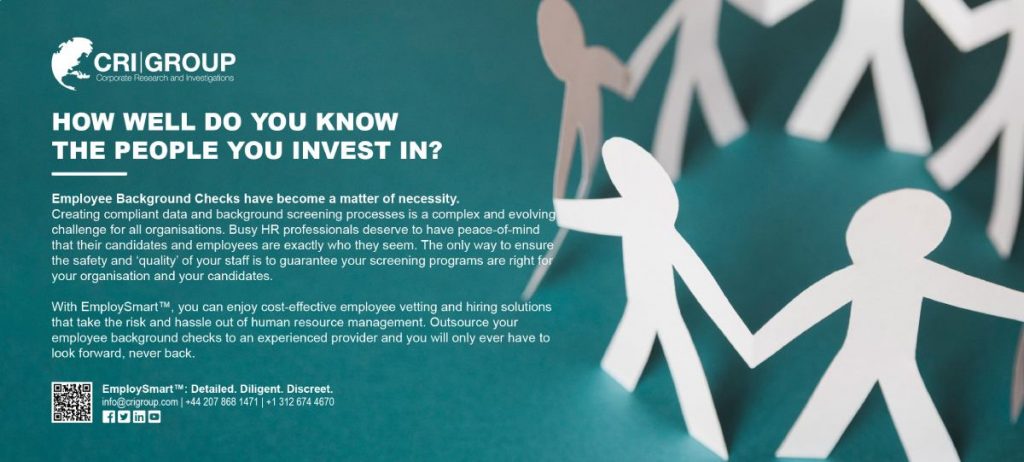
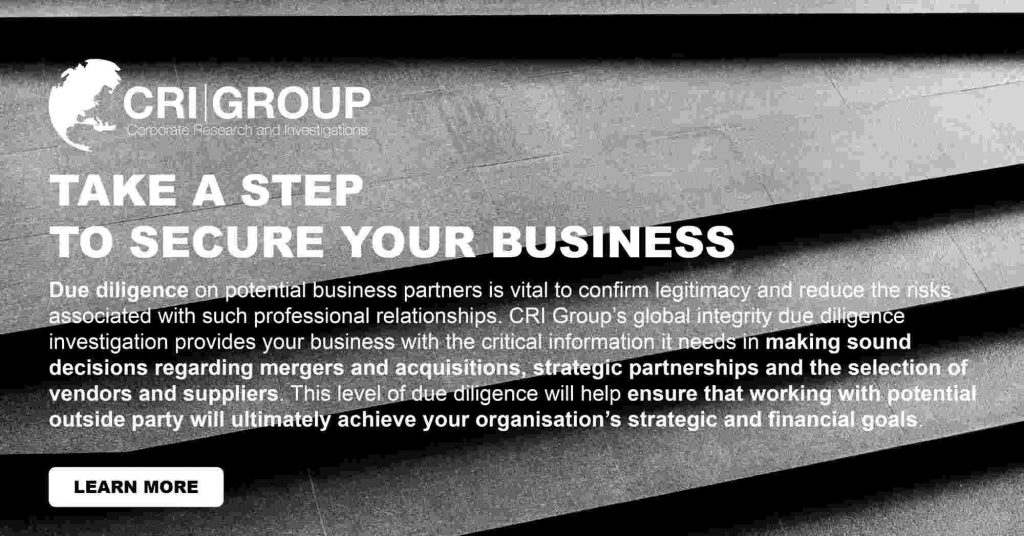


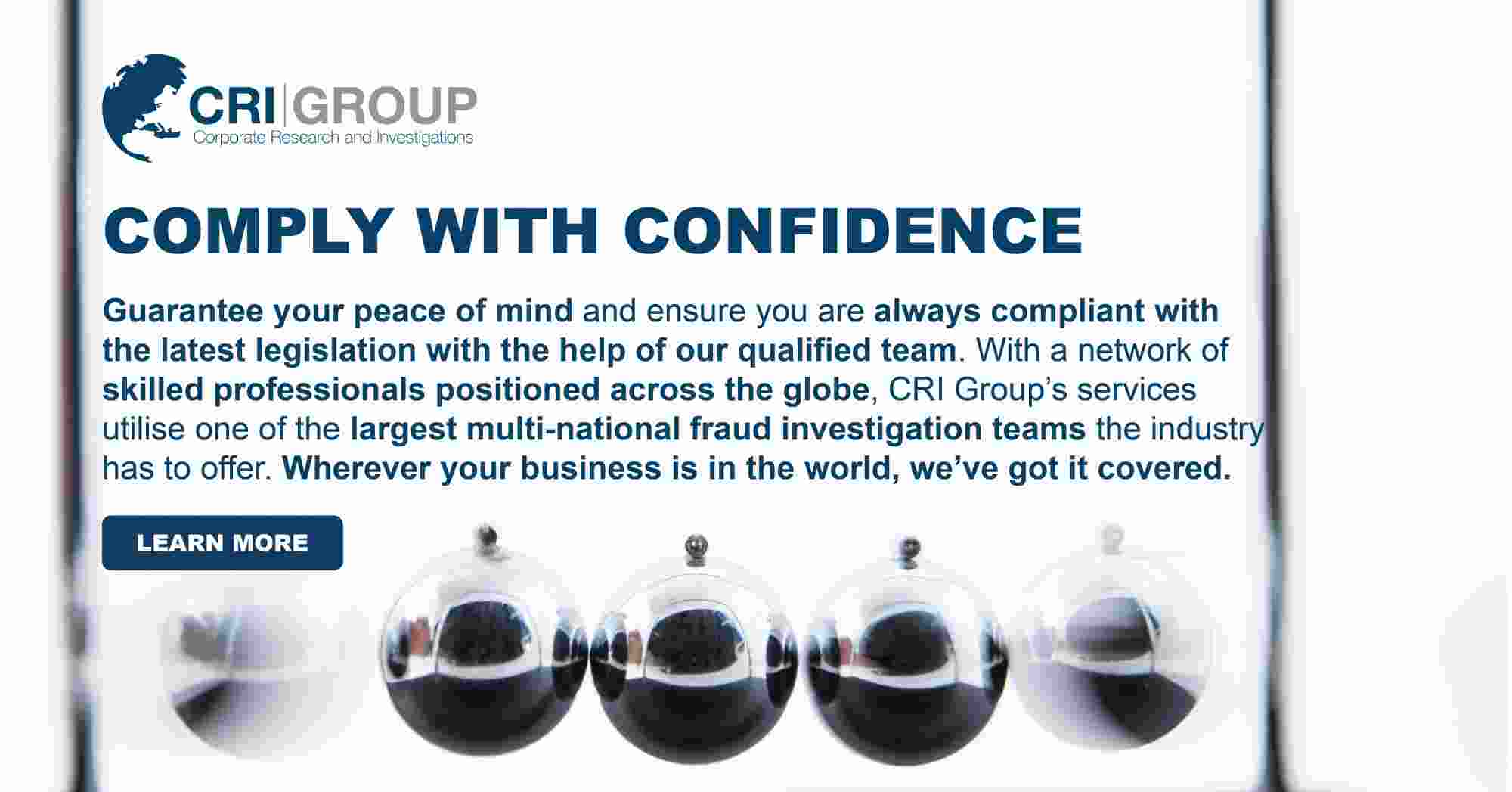
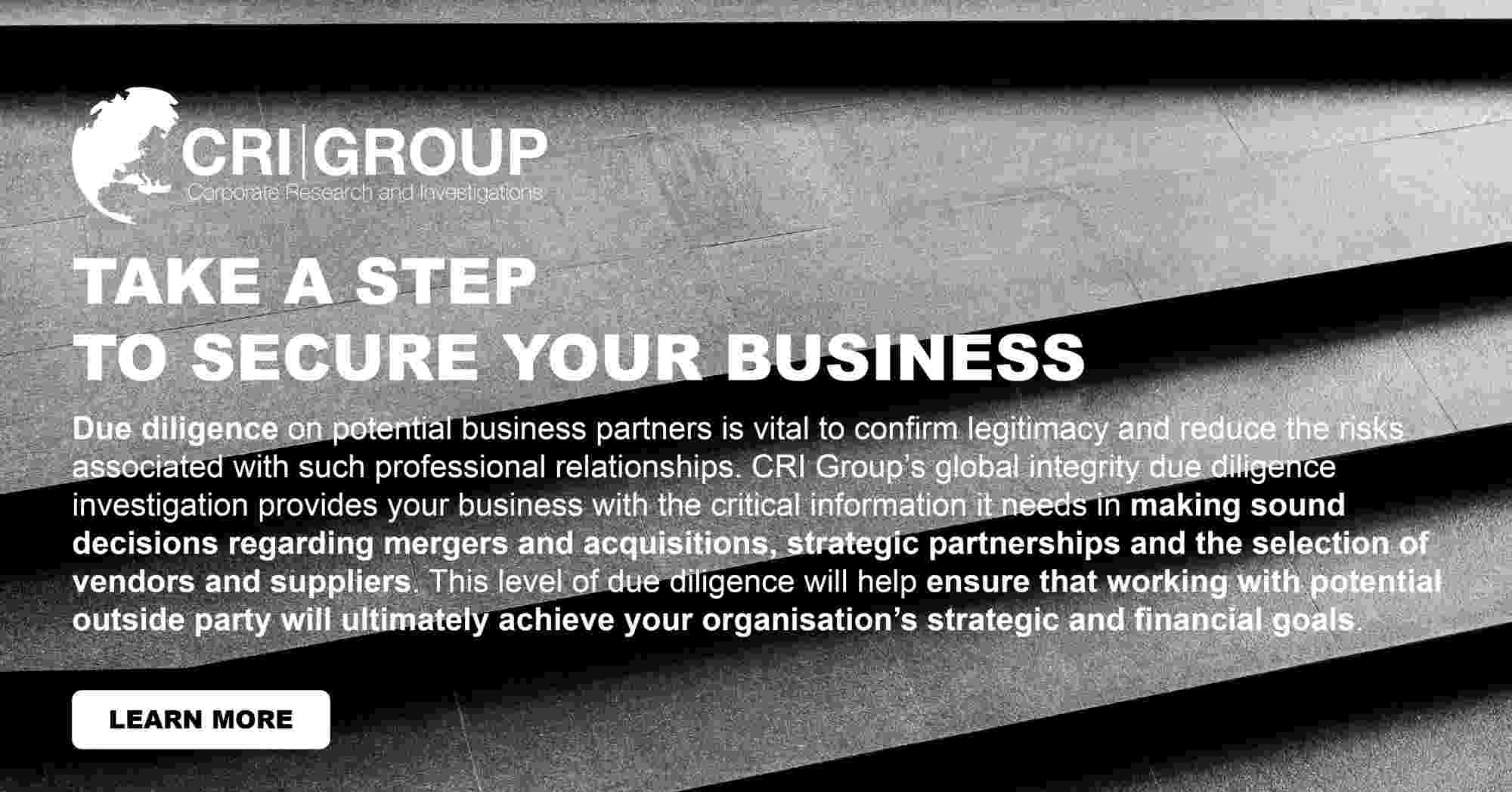

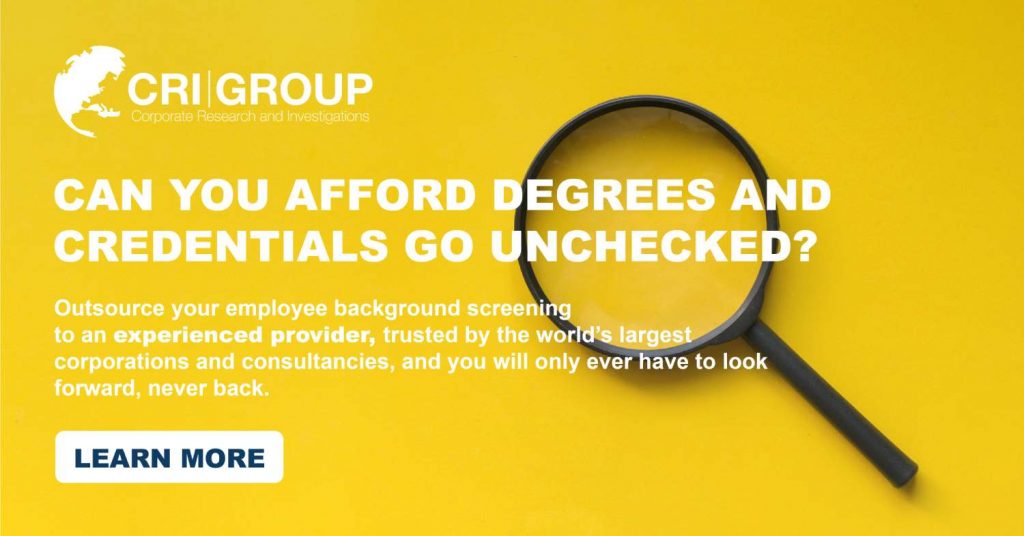

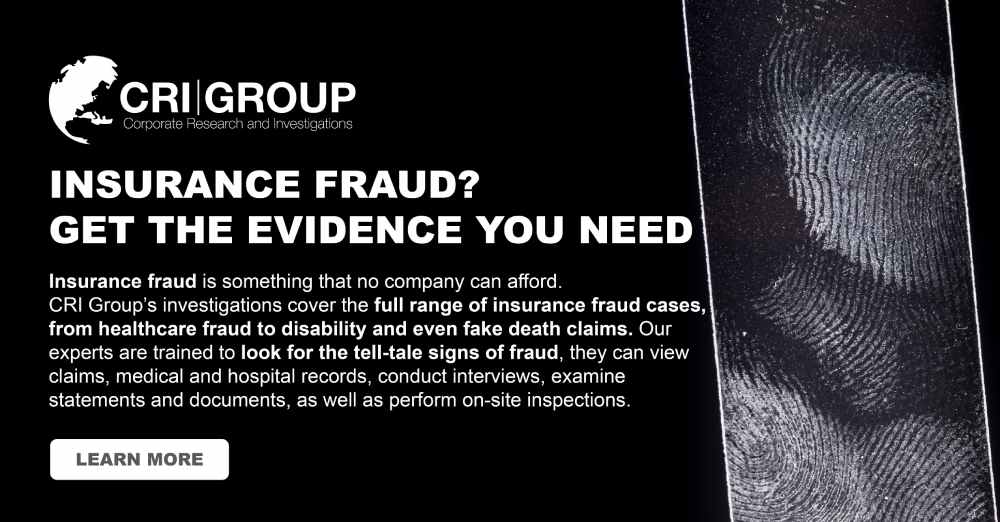

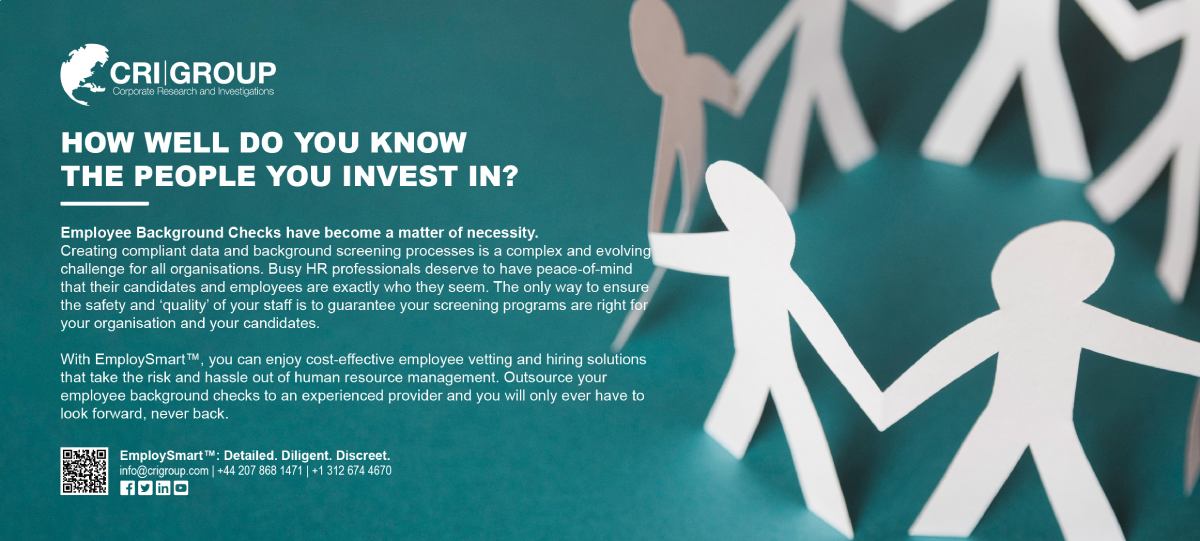


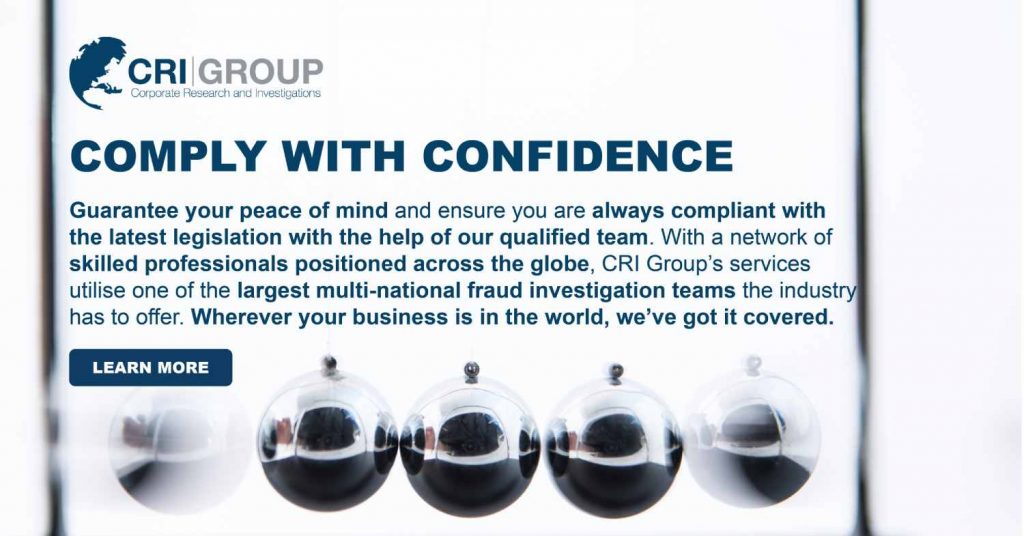
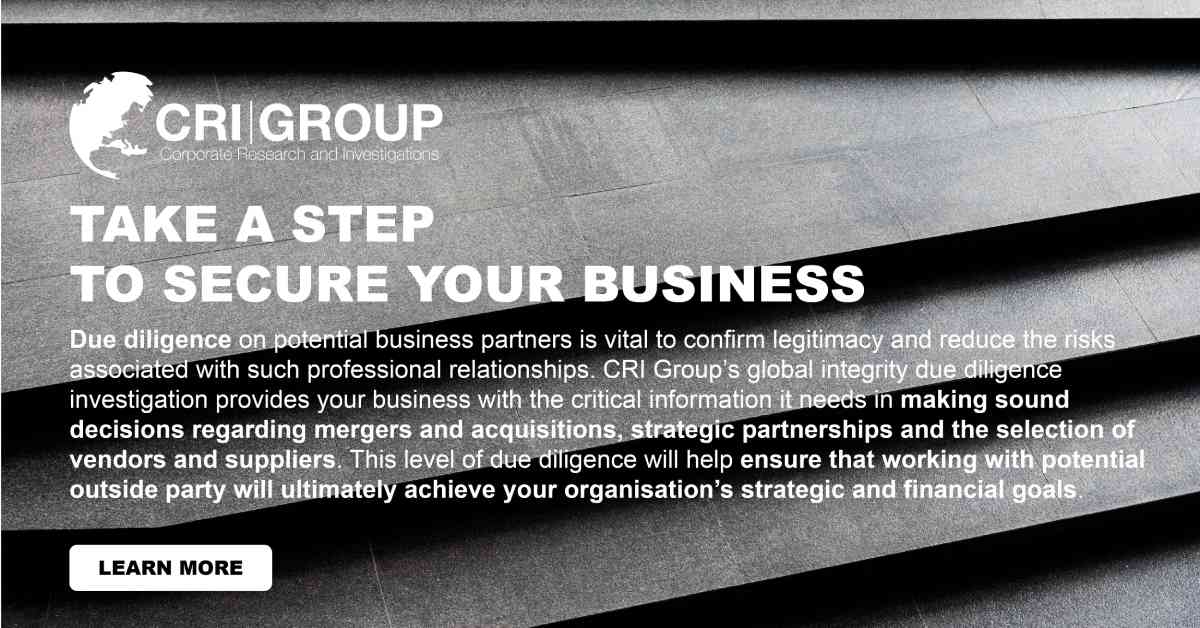

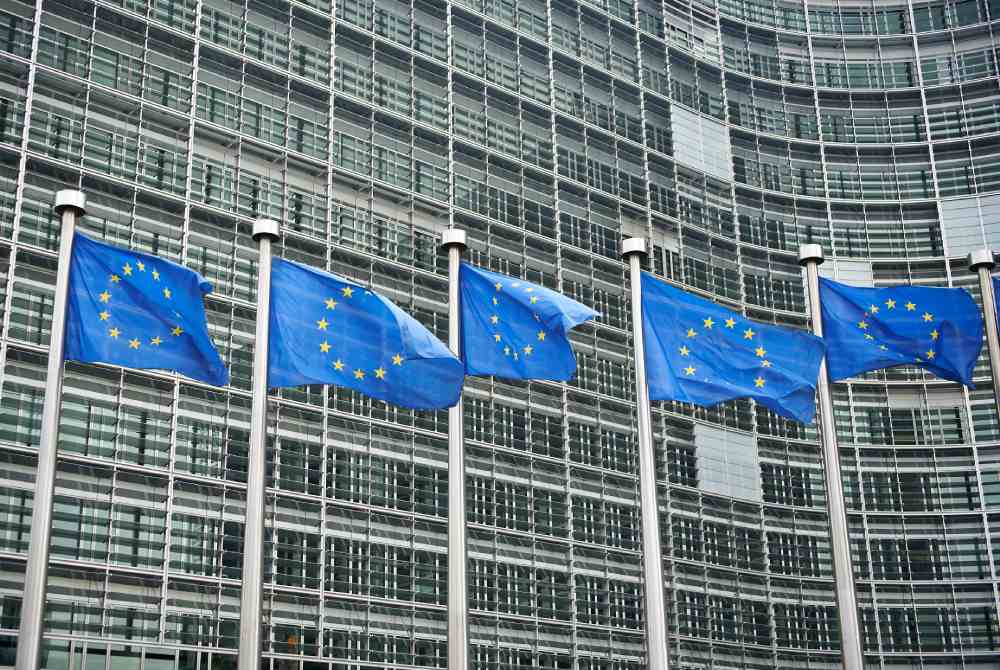
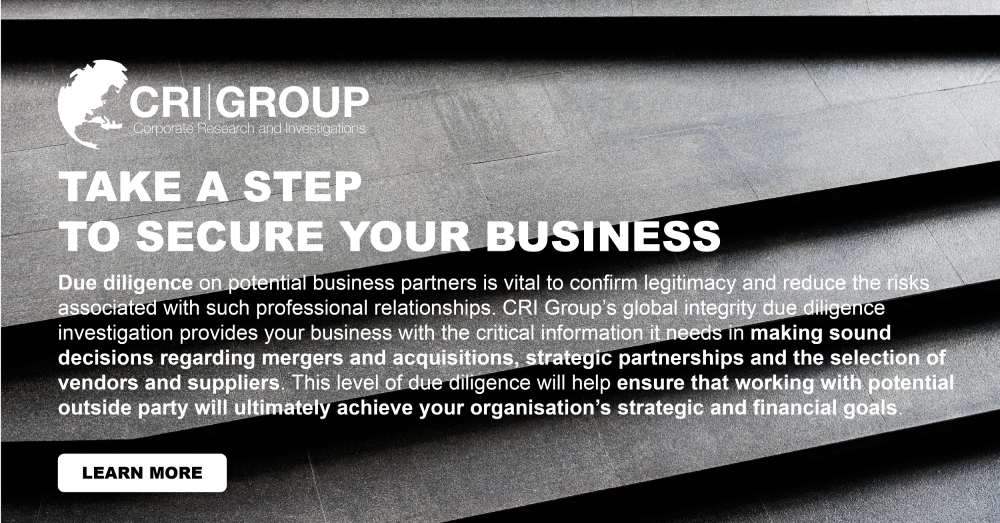
اتصل بنا
المقر الرئيسي: +44 7588 454959
المحلي: +971 800 274552
:البريد الإلكتروني info@crigroup.com
المقر الرئيسي: 454959 7588 44
المحلي: 274552 800 971
:البريد الإلكتروني info@crigroup.com
الاشتراك في النشرة الإخبارية